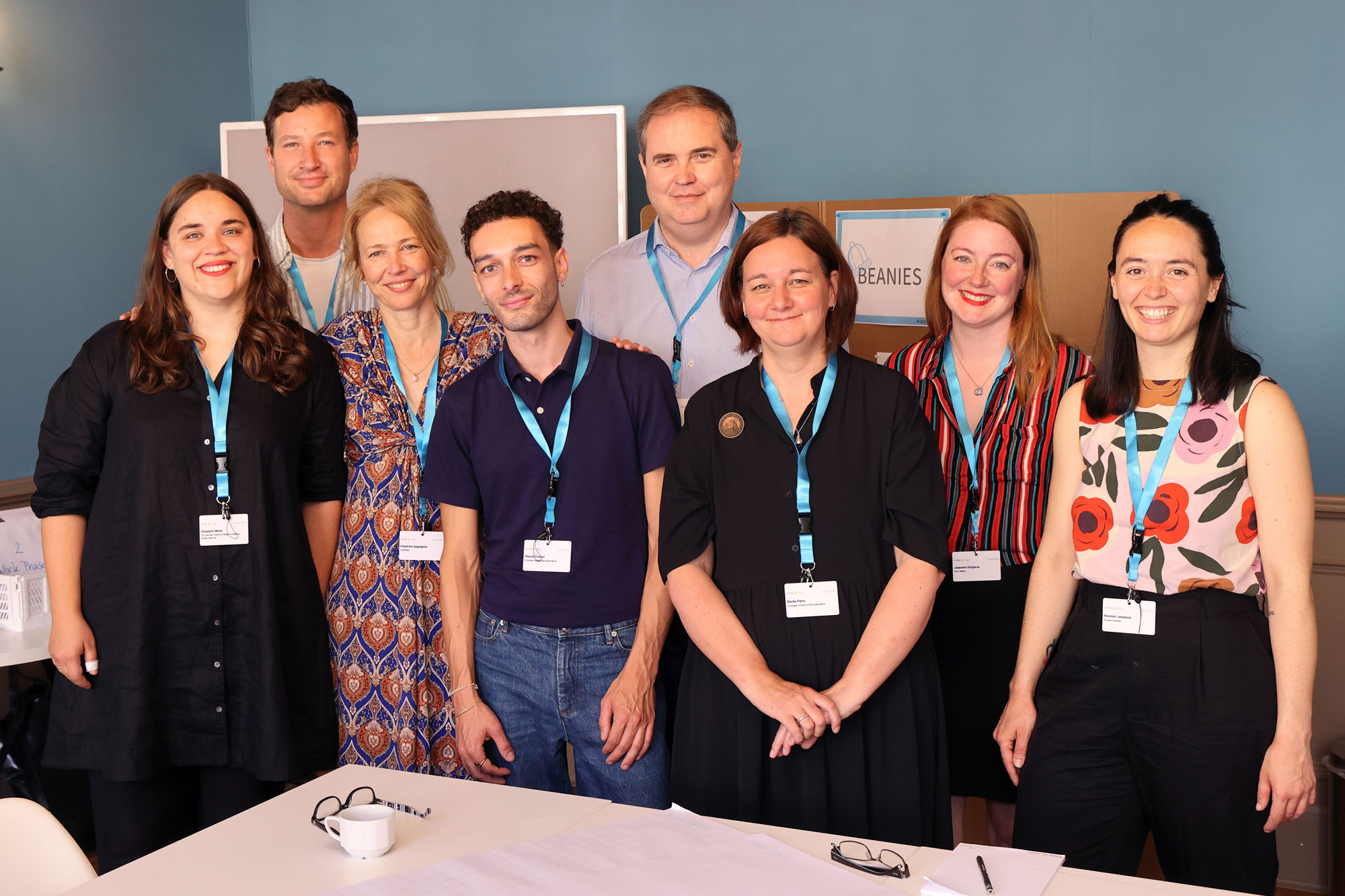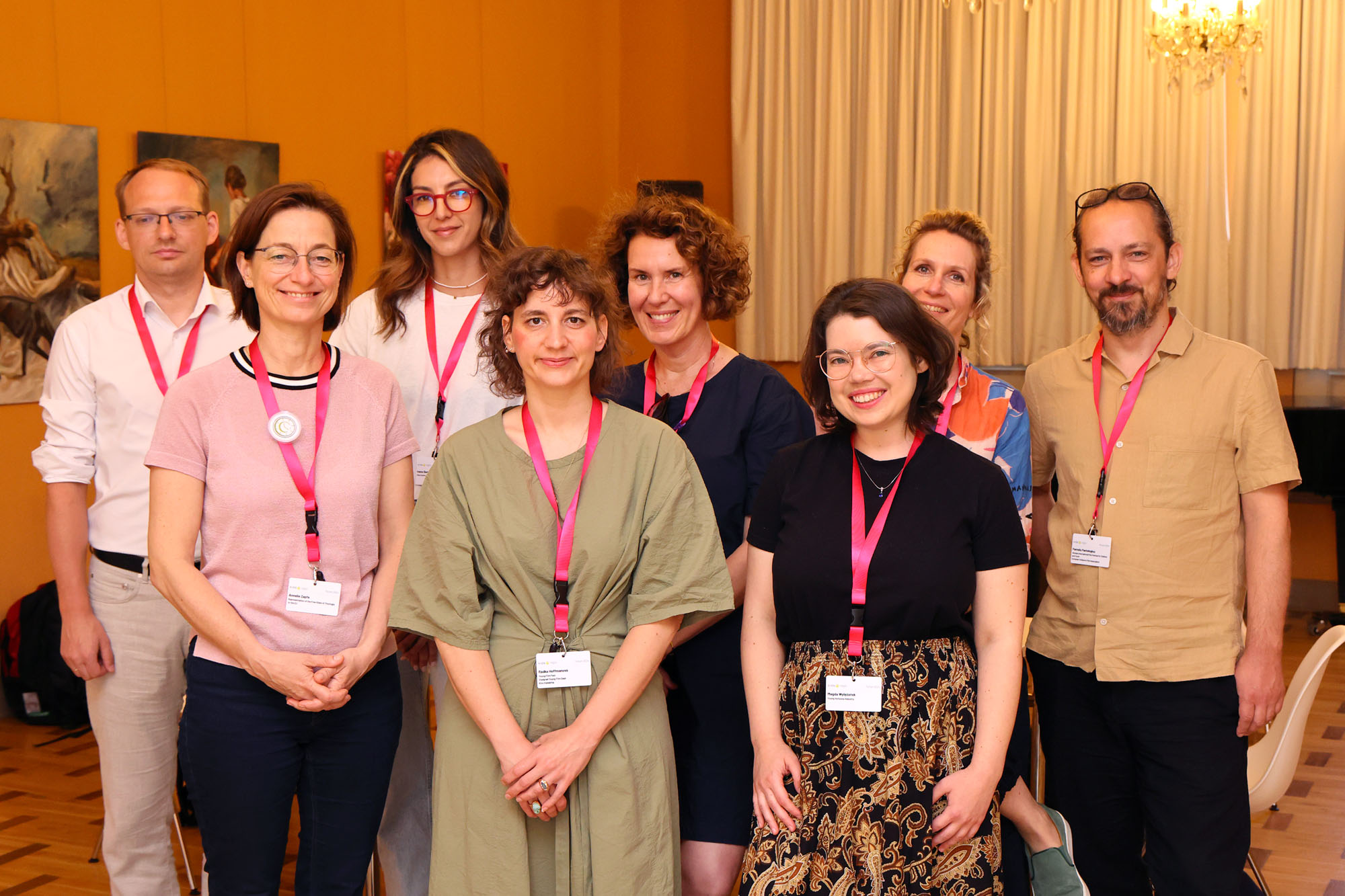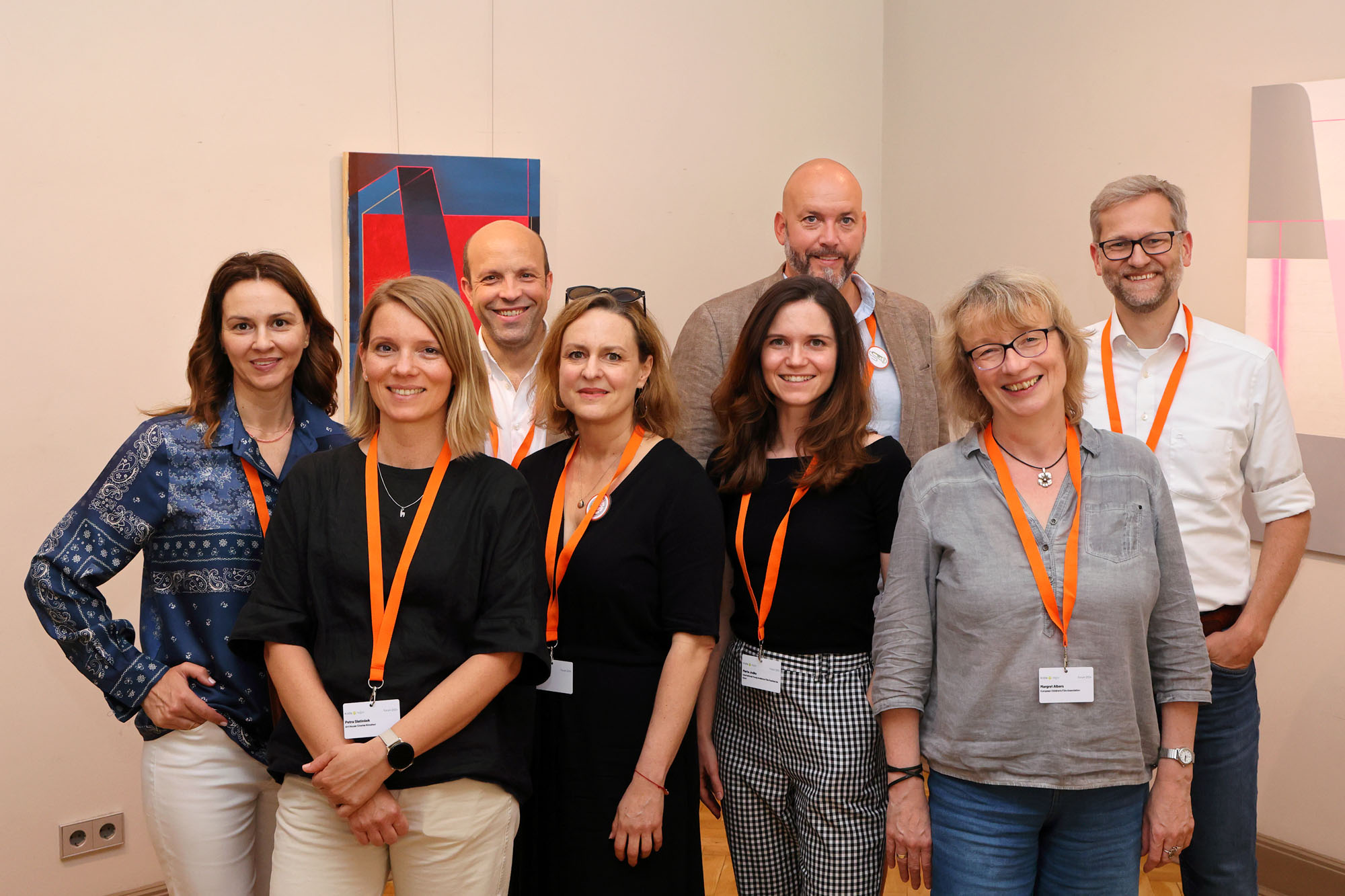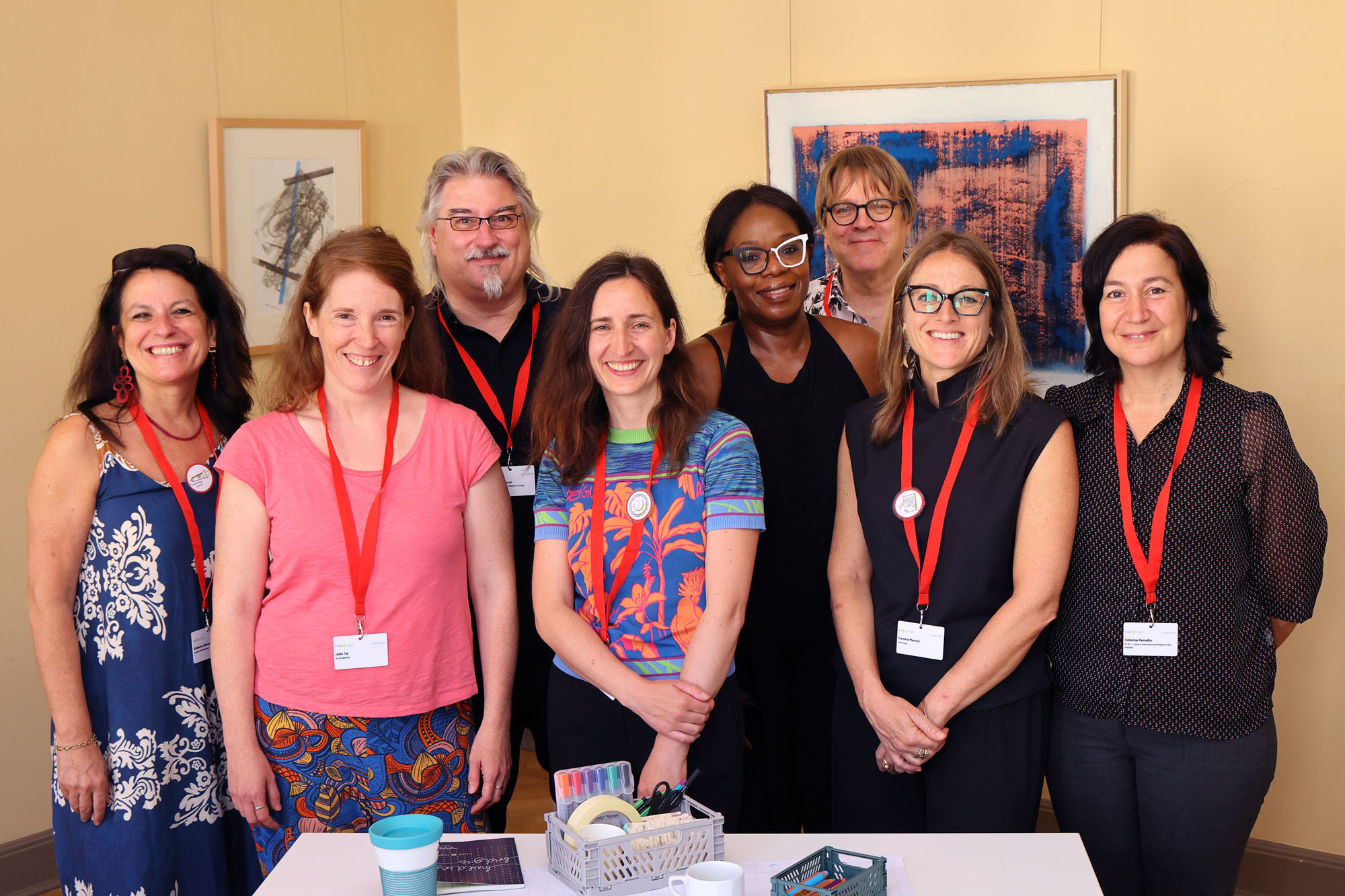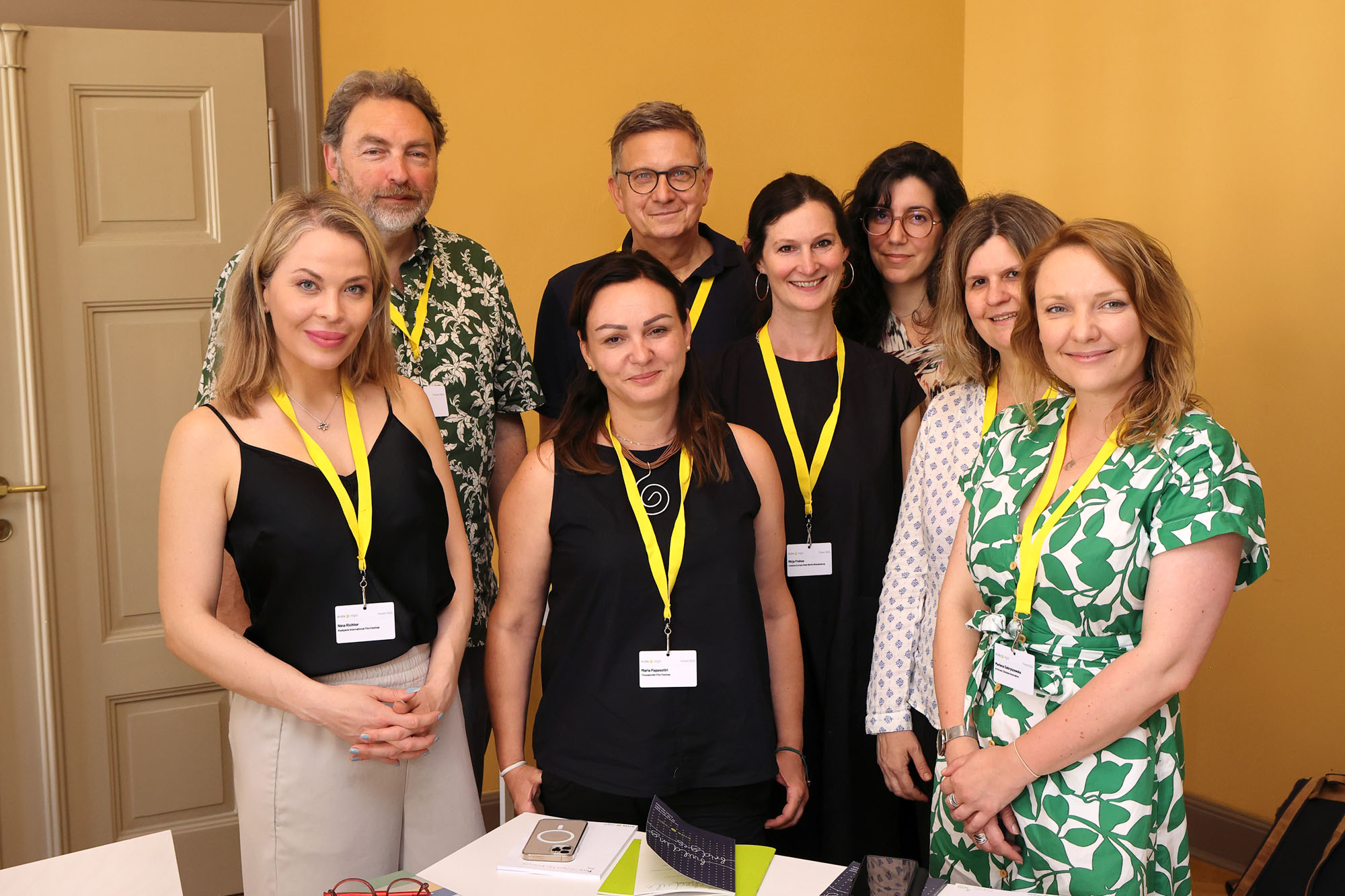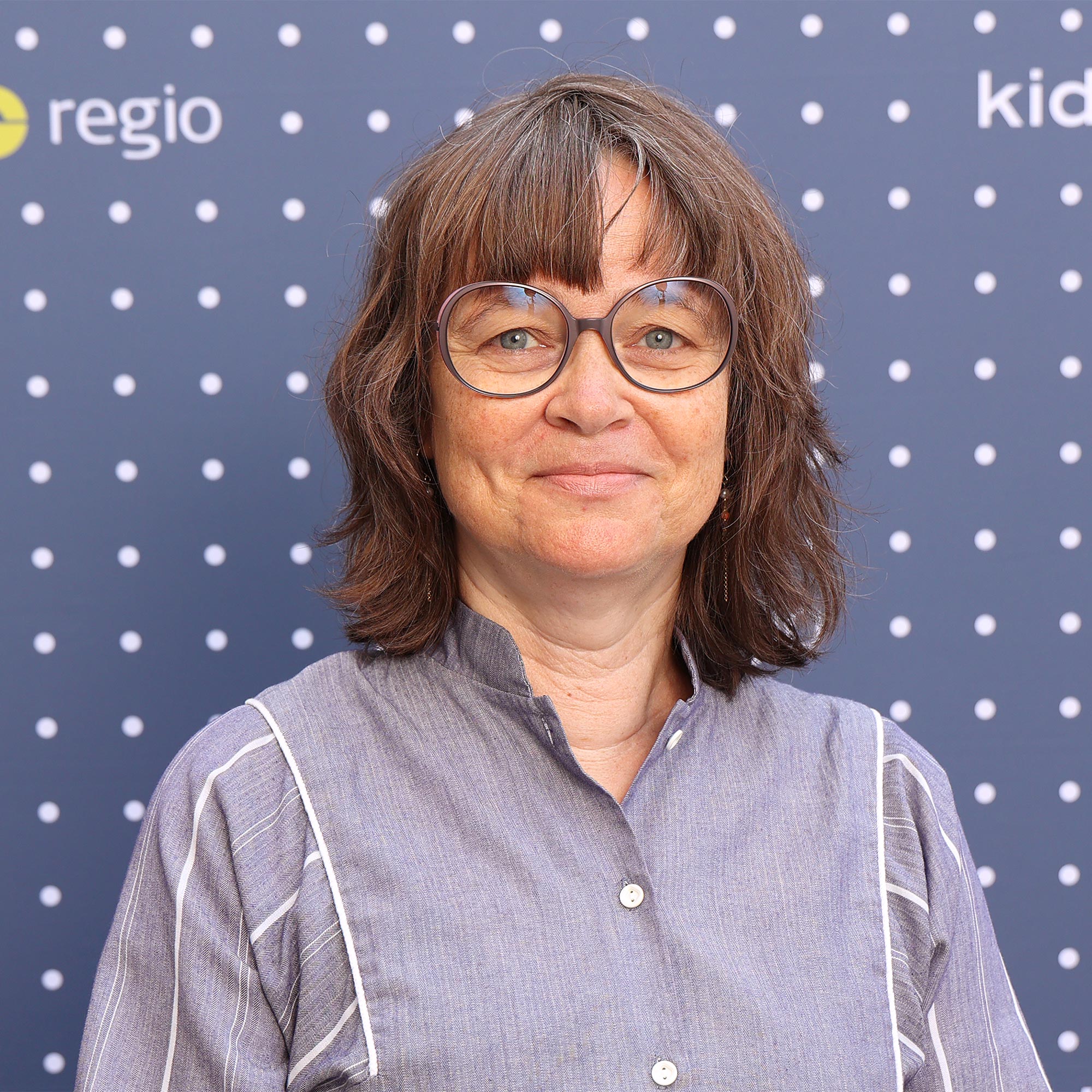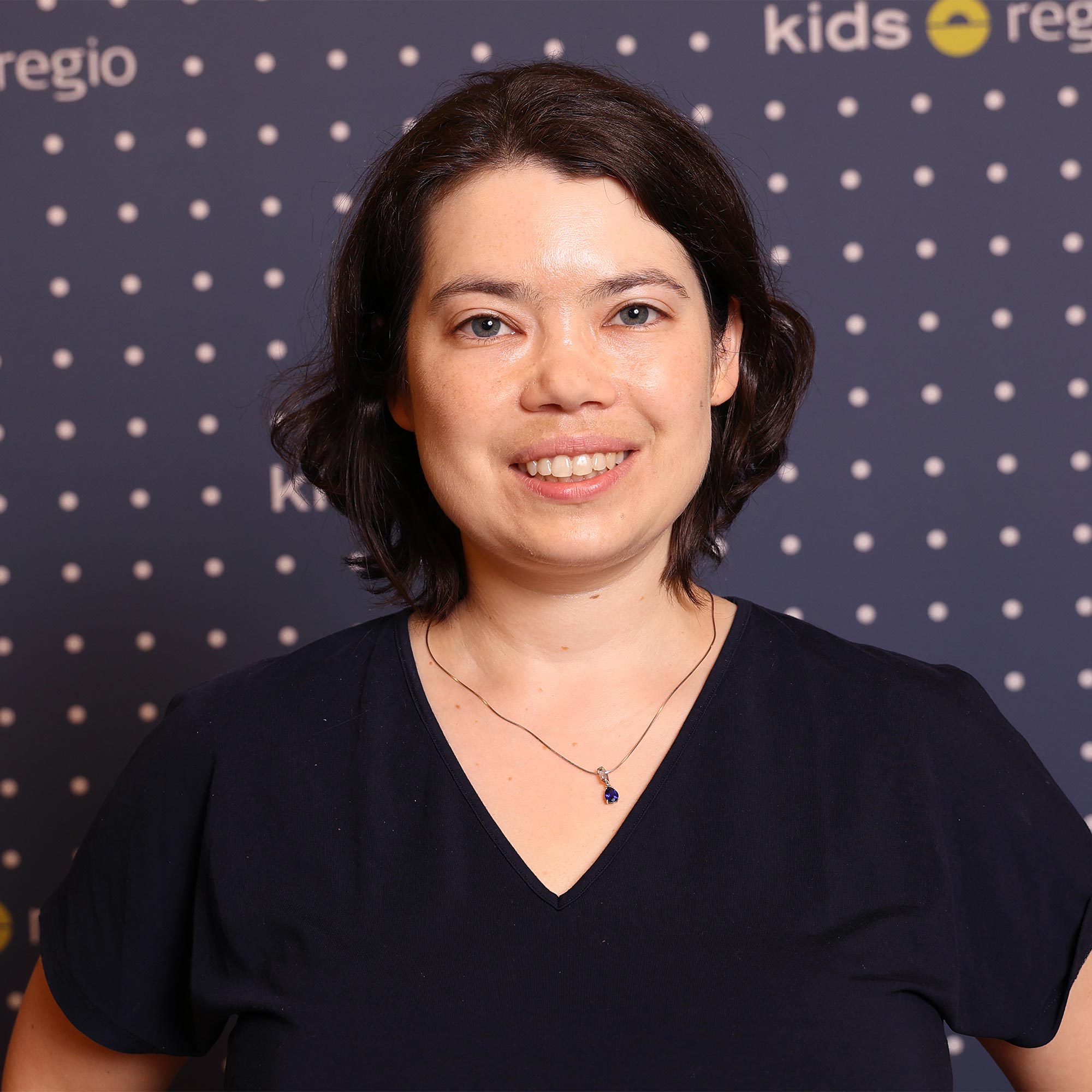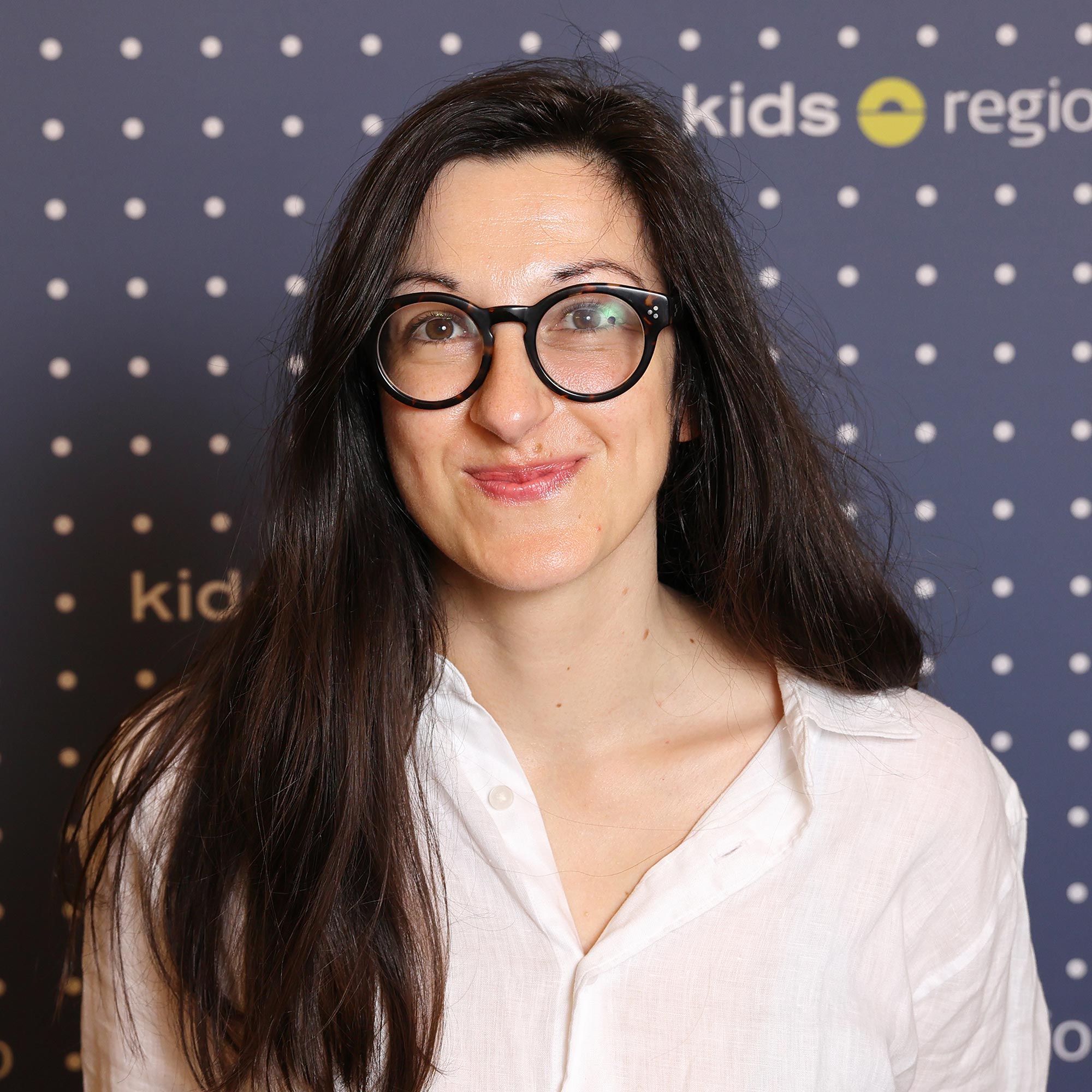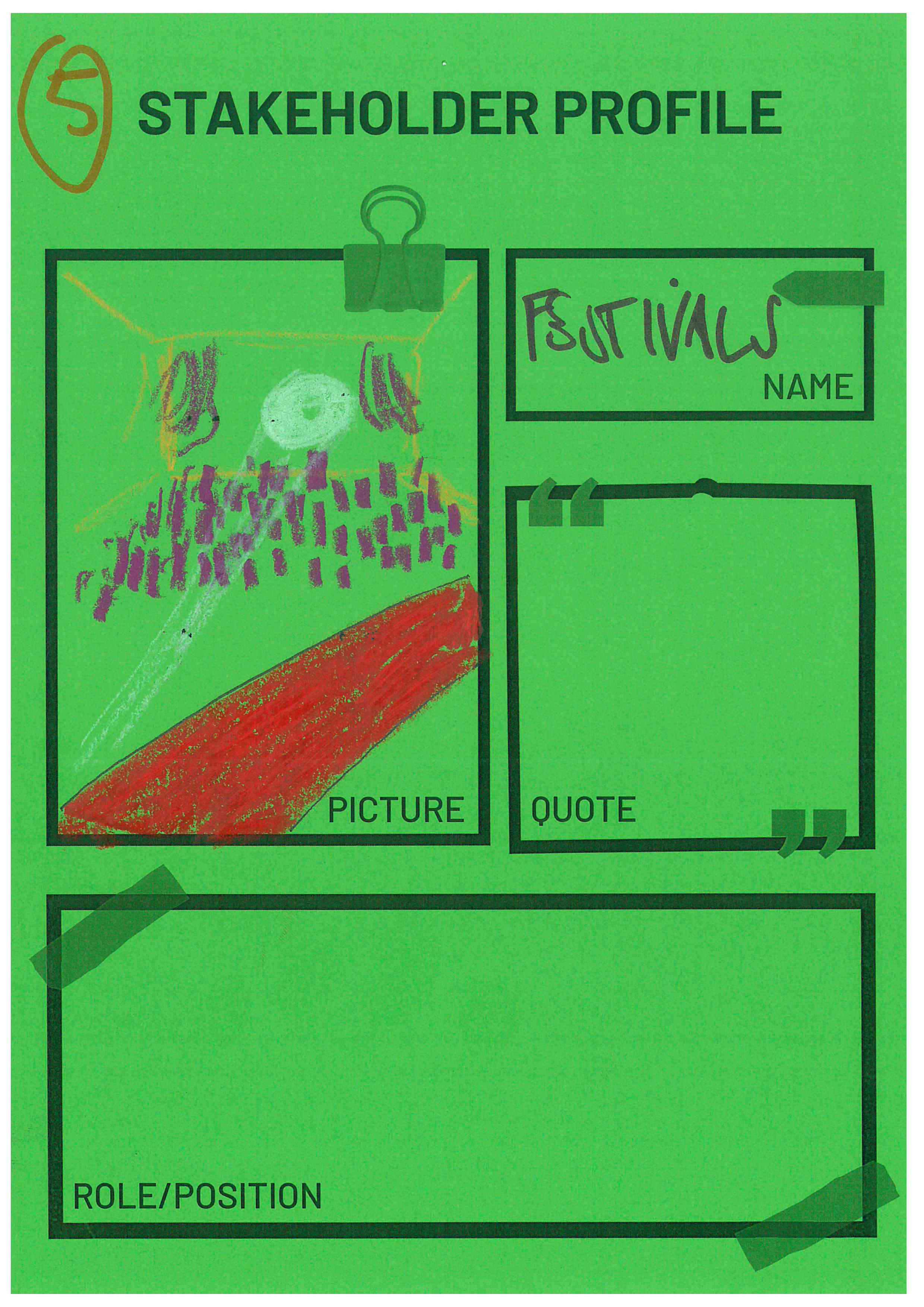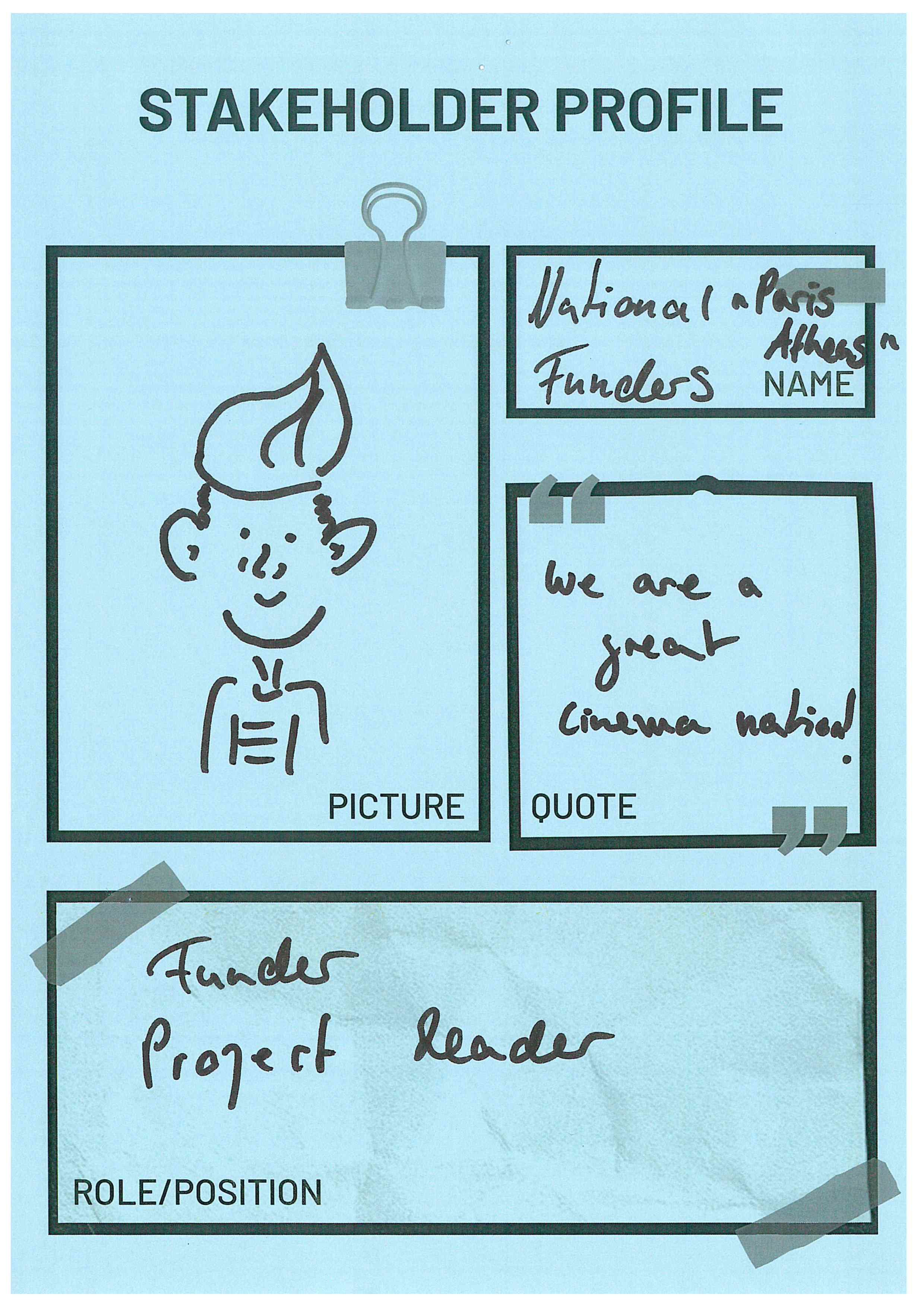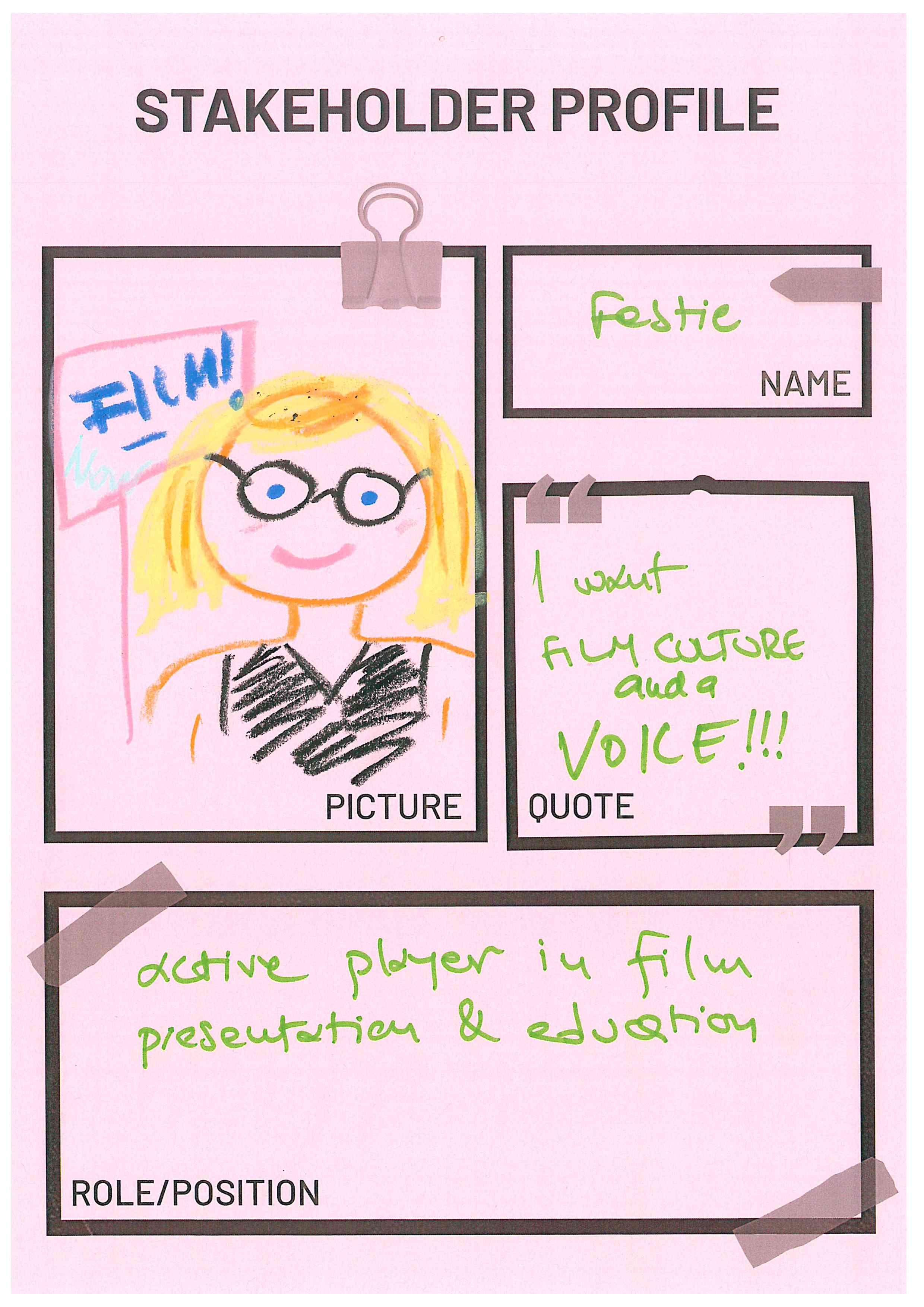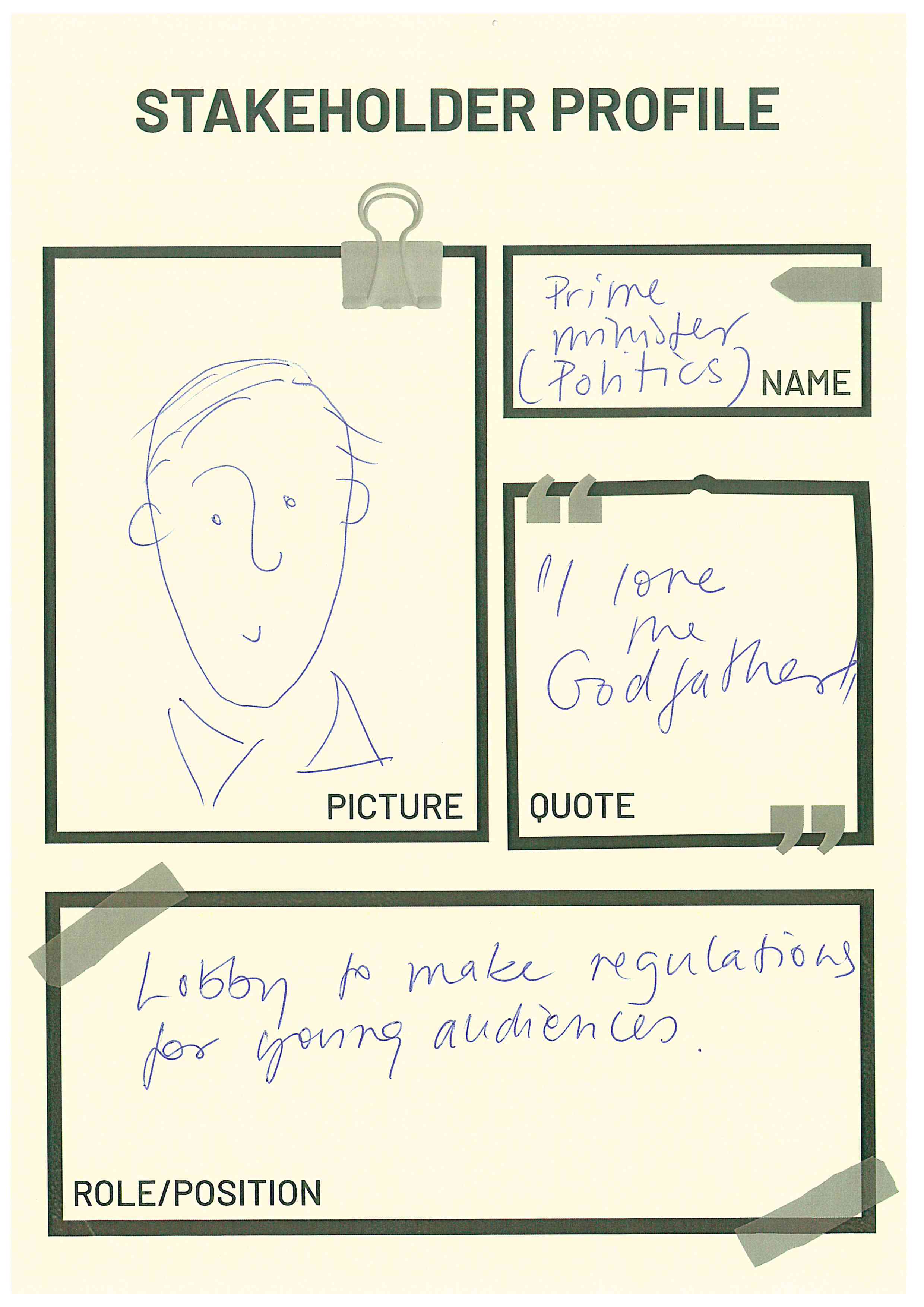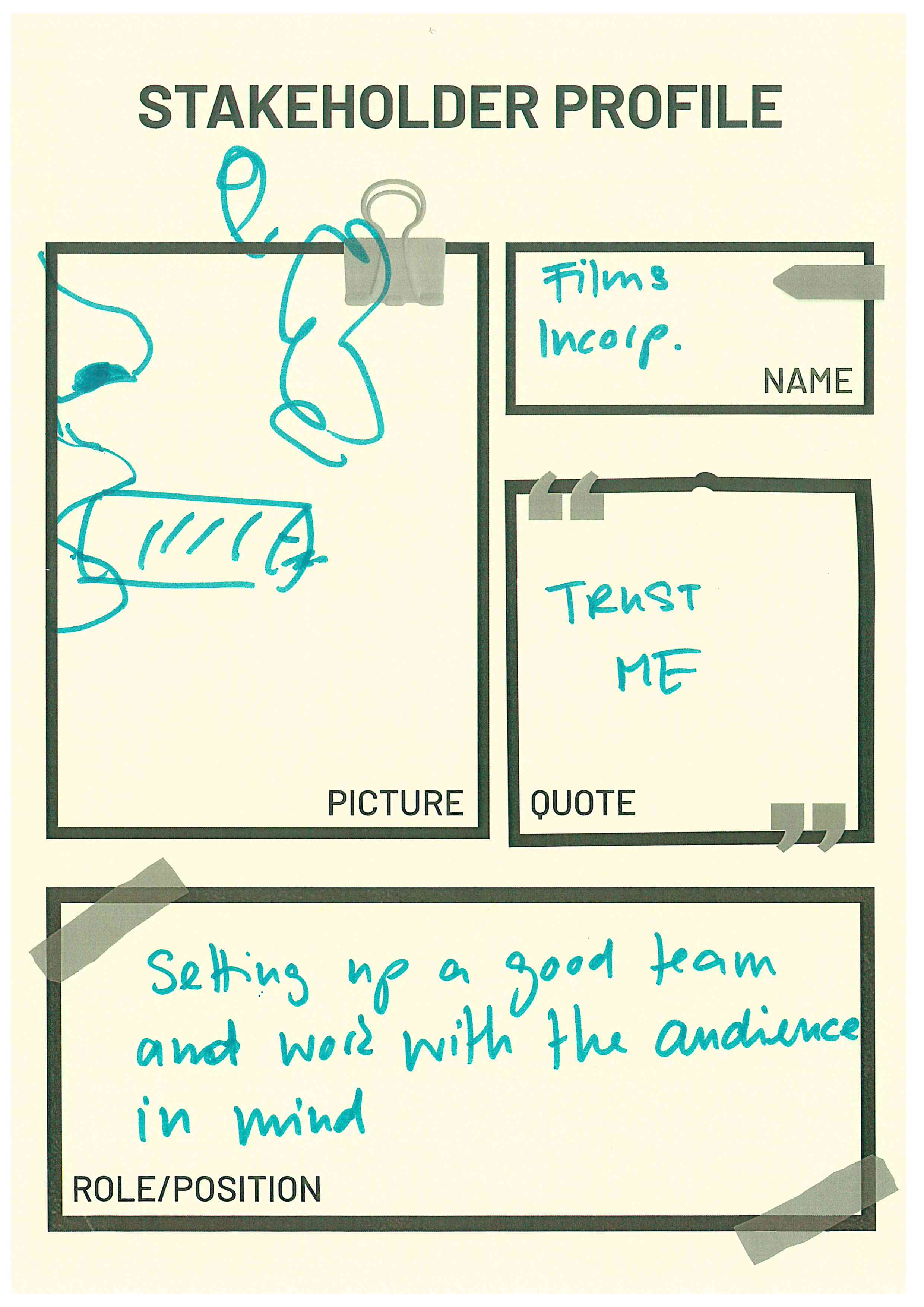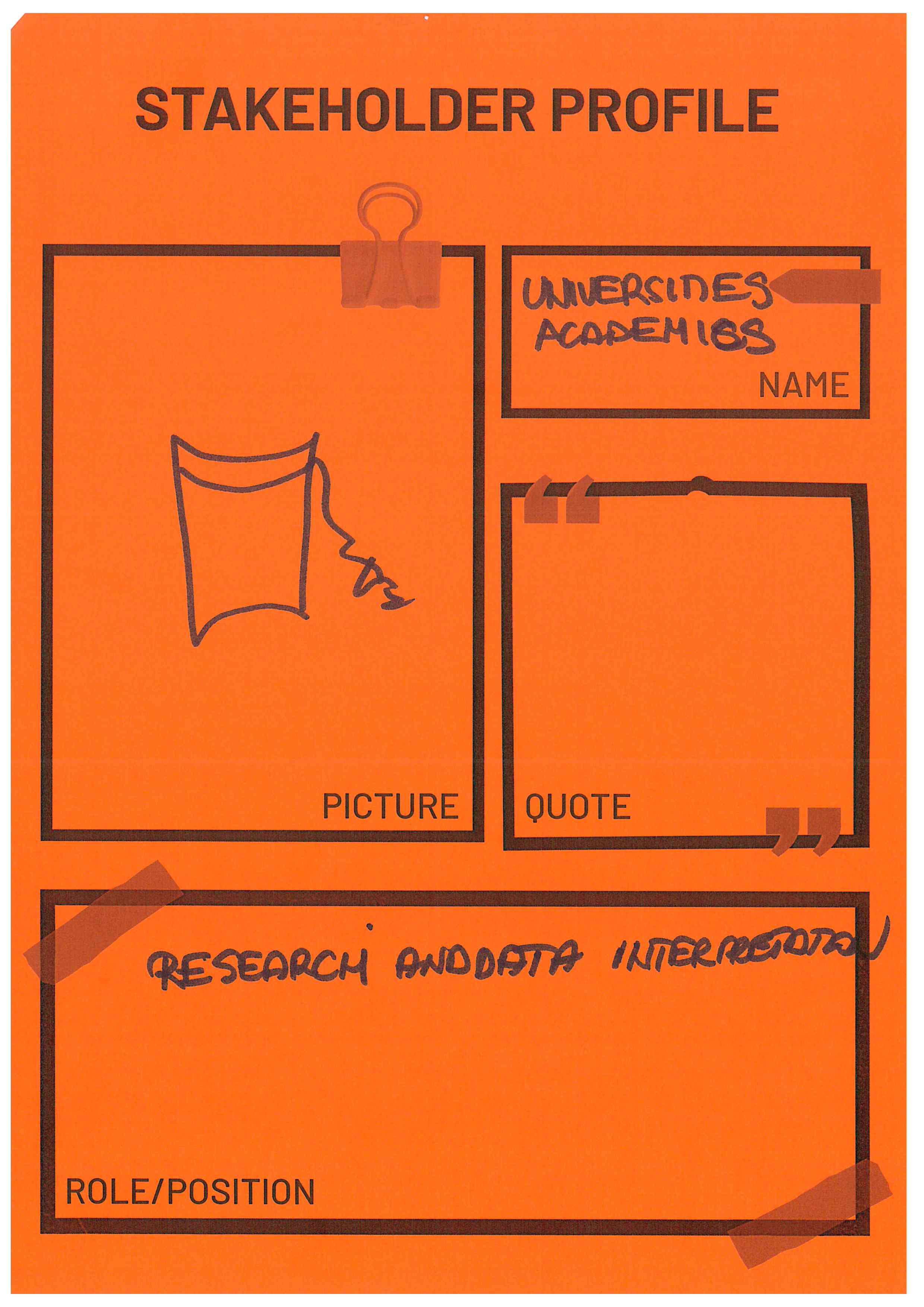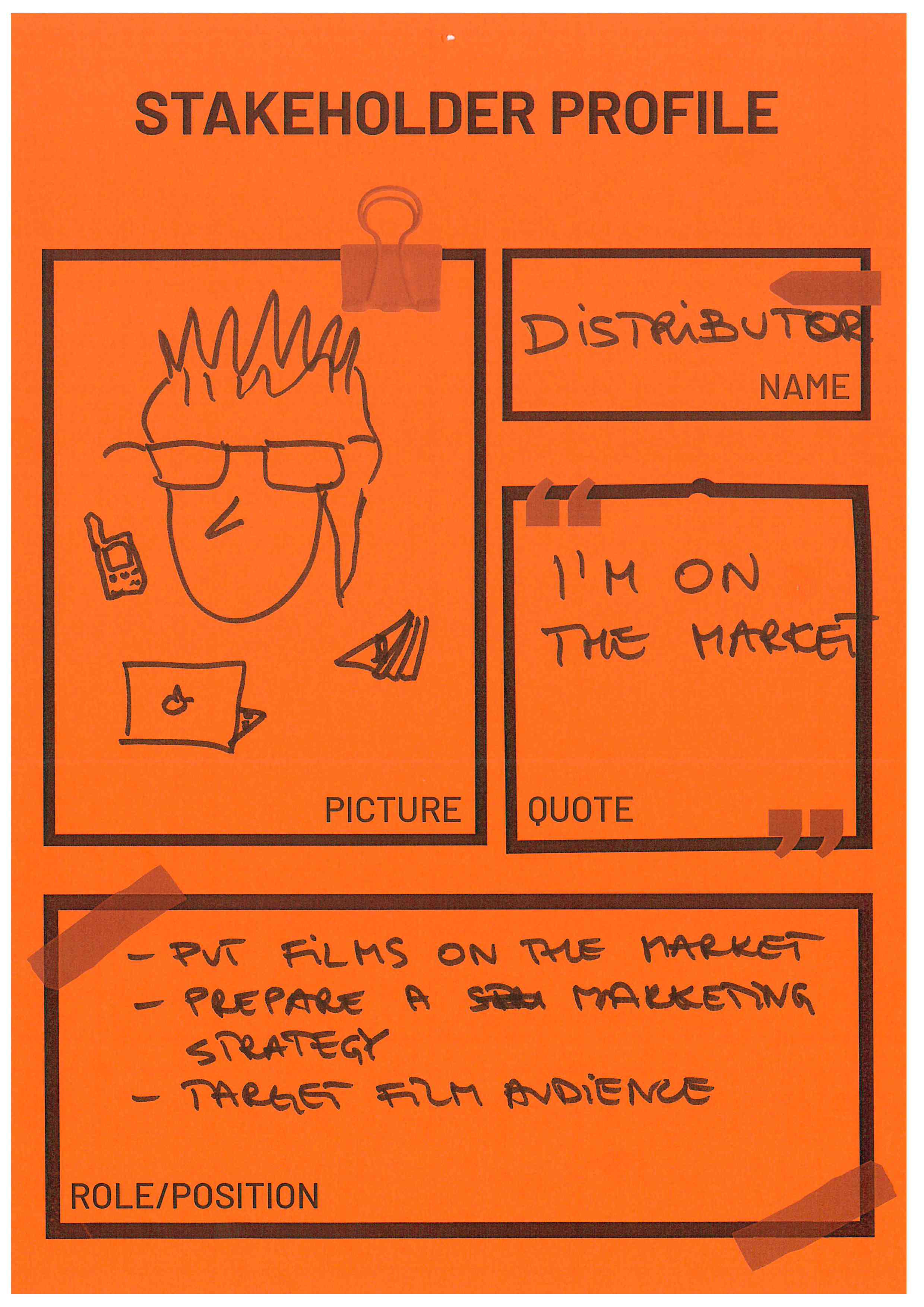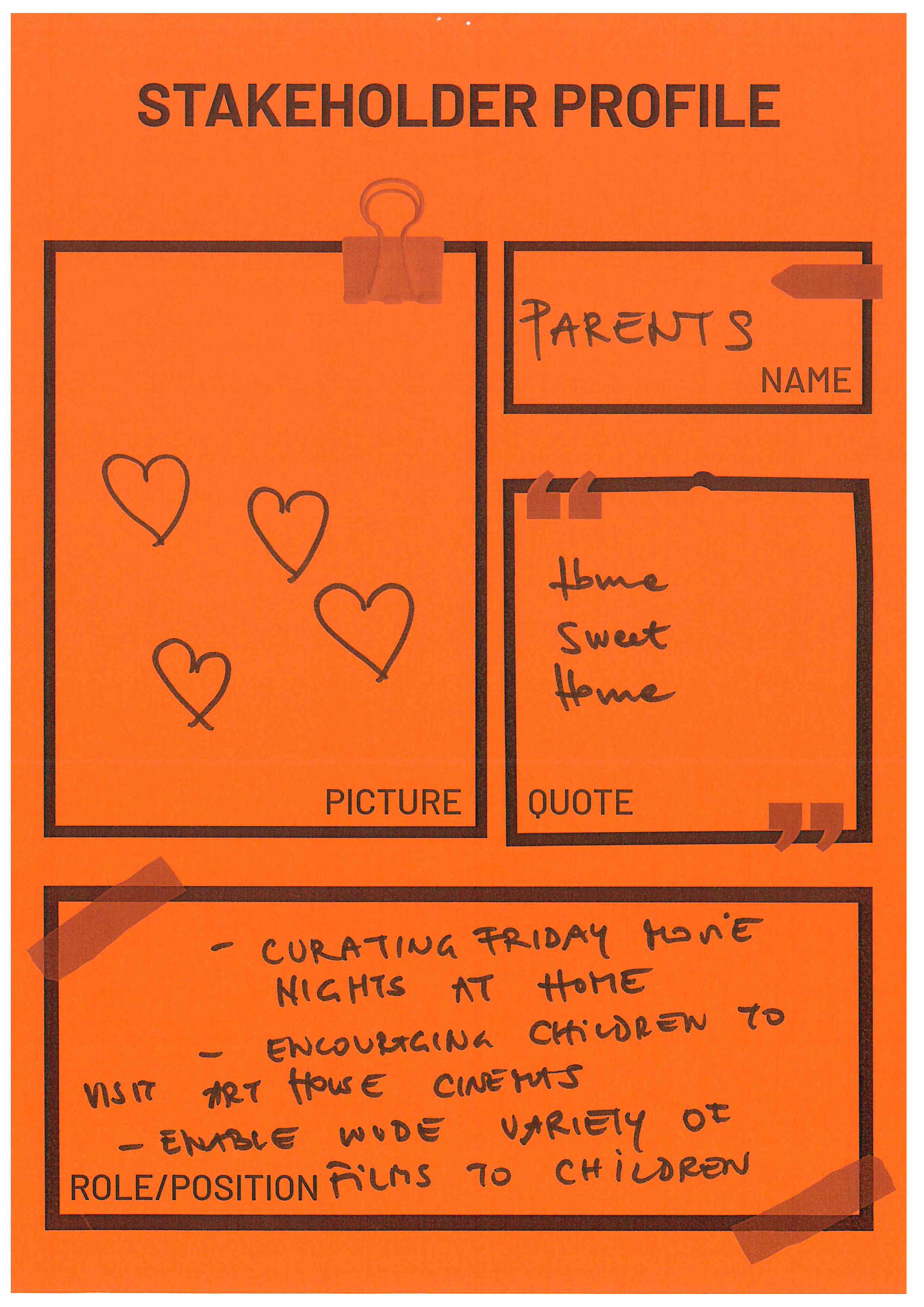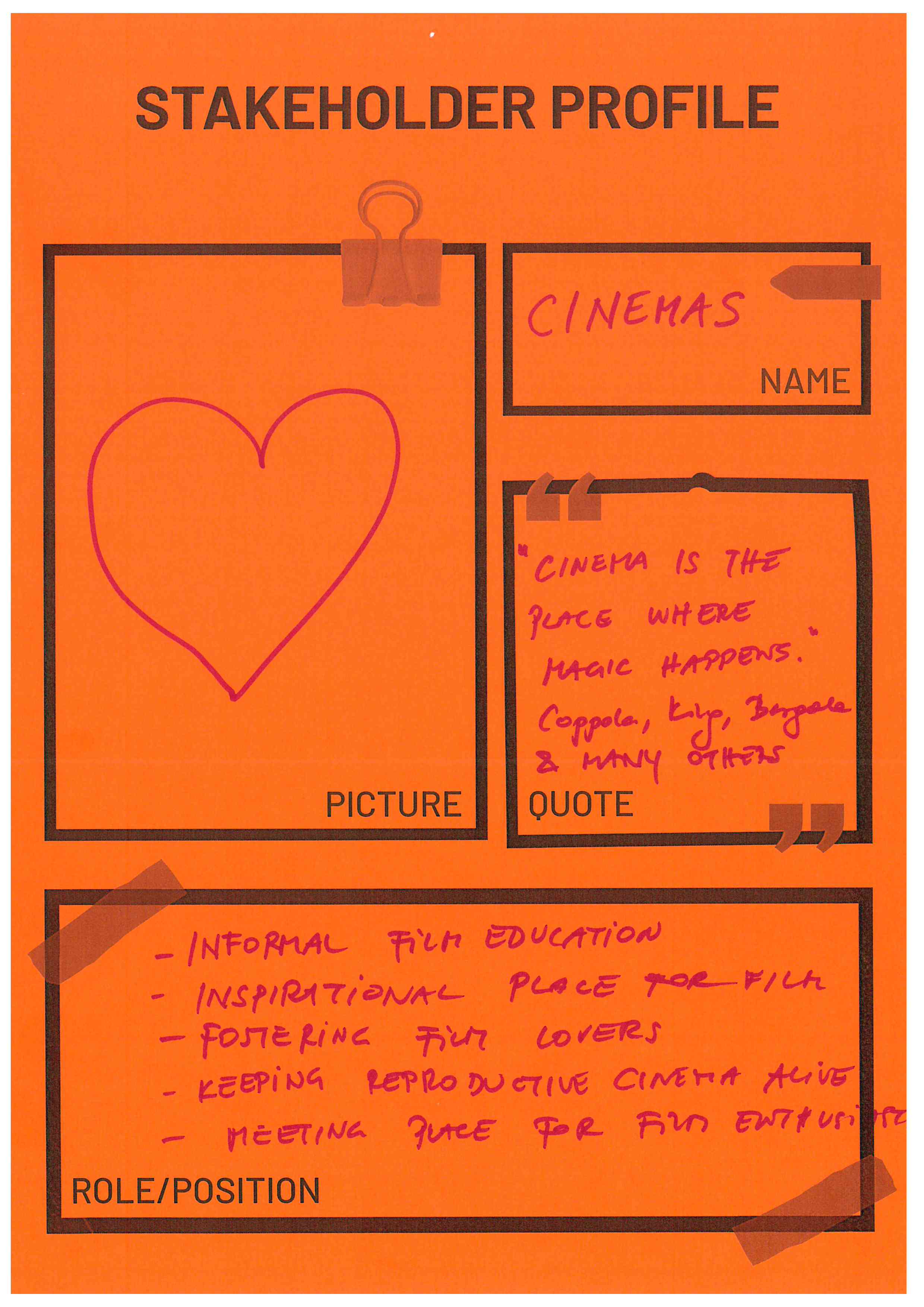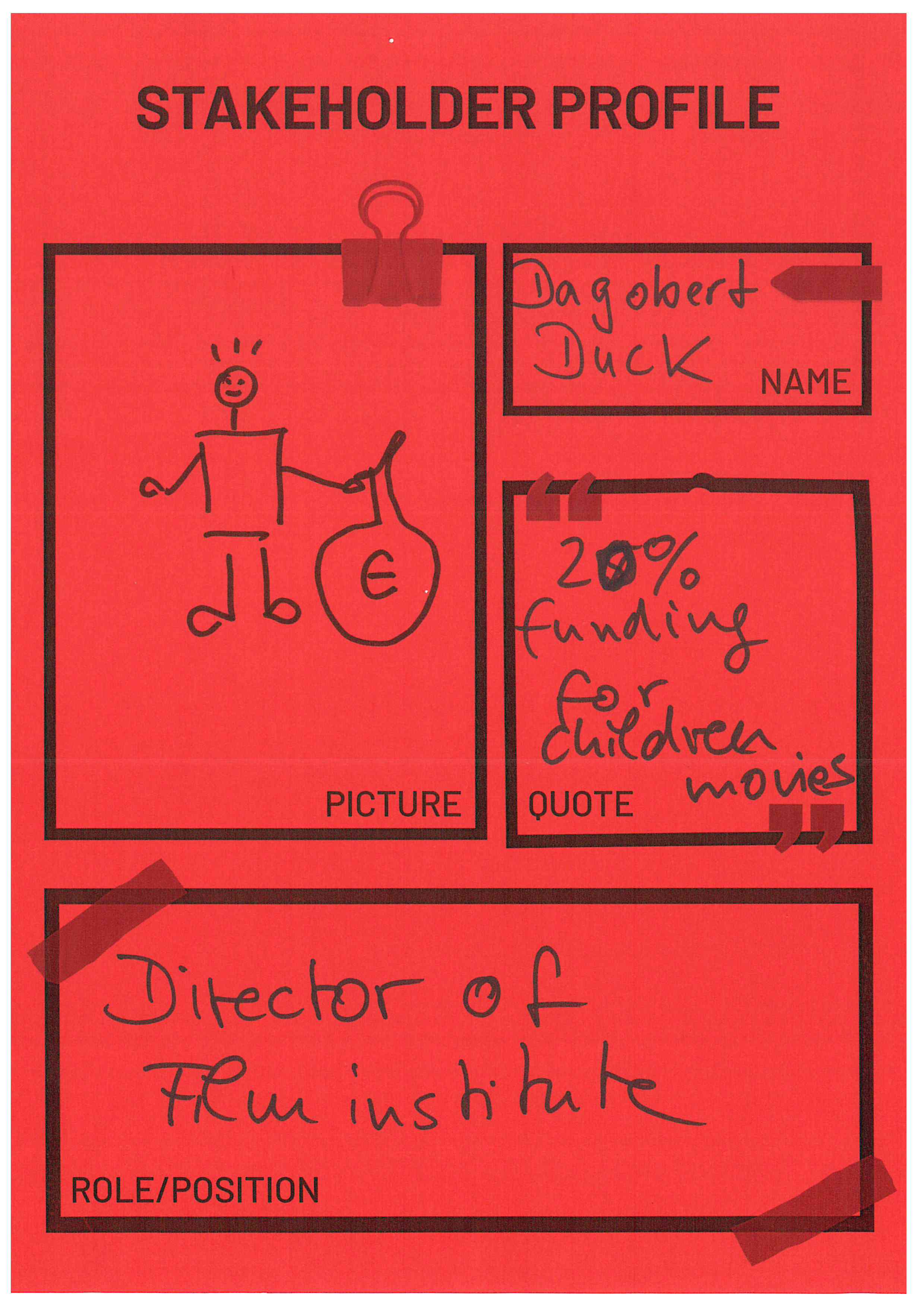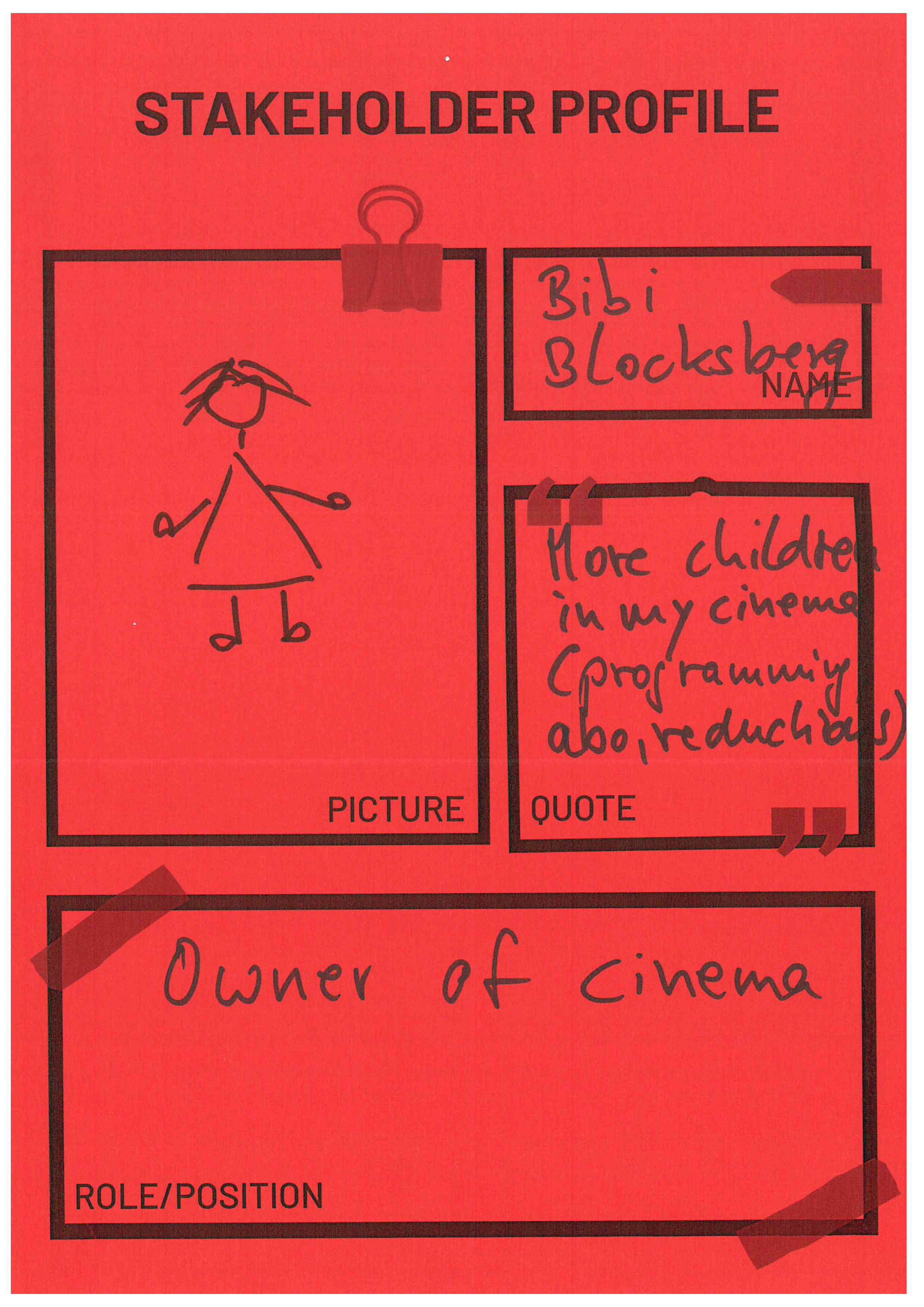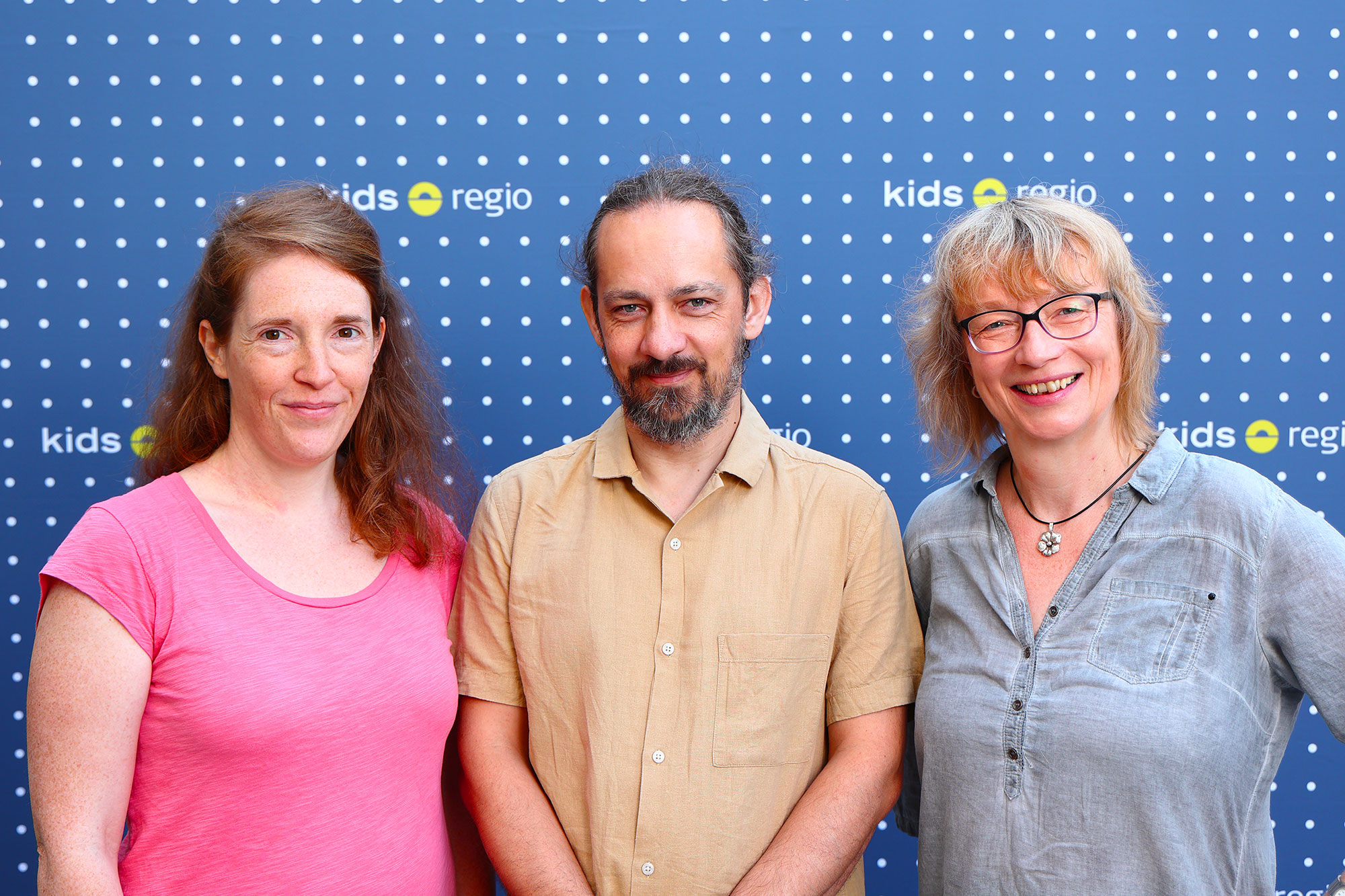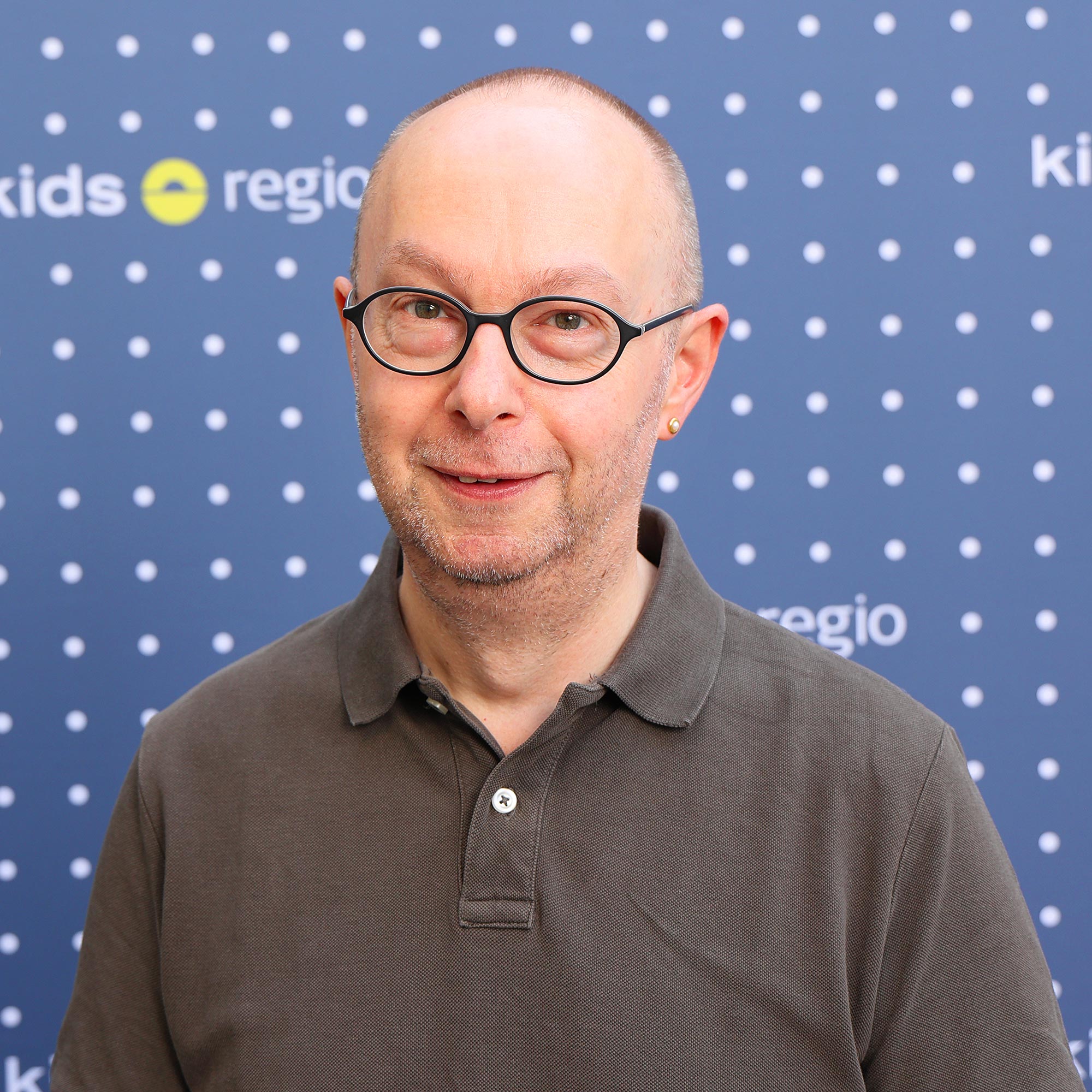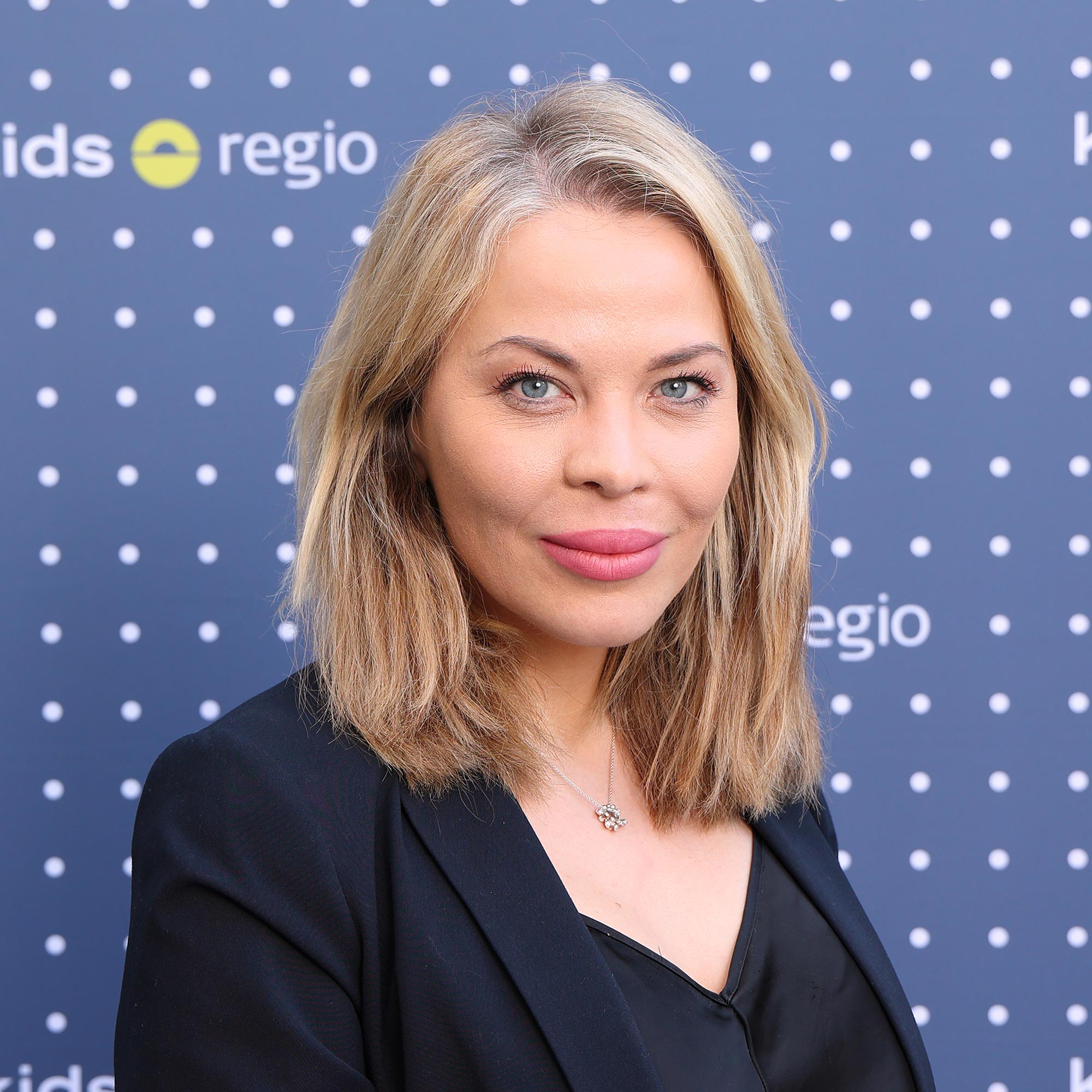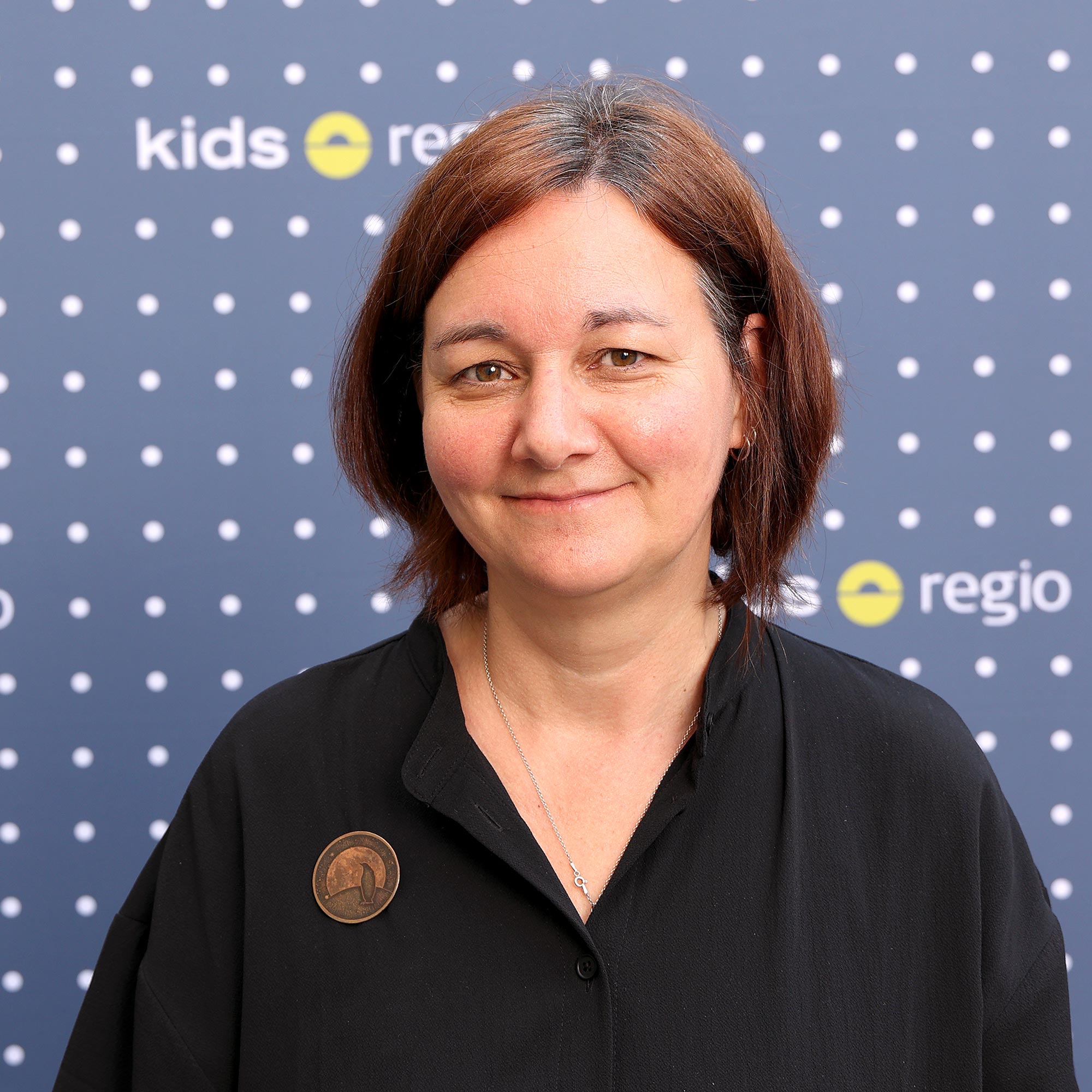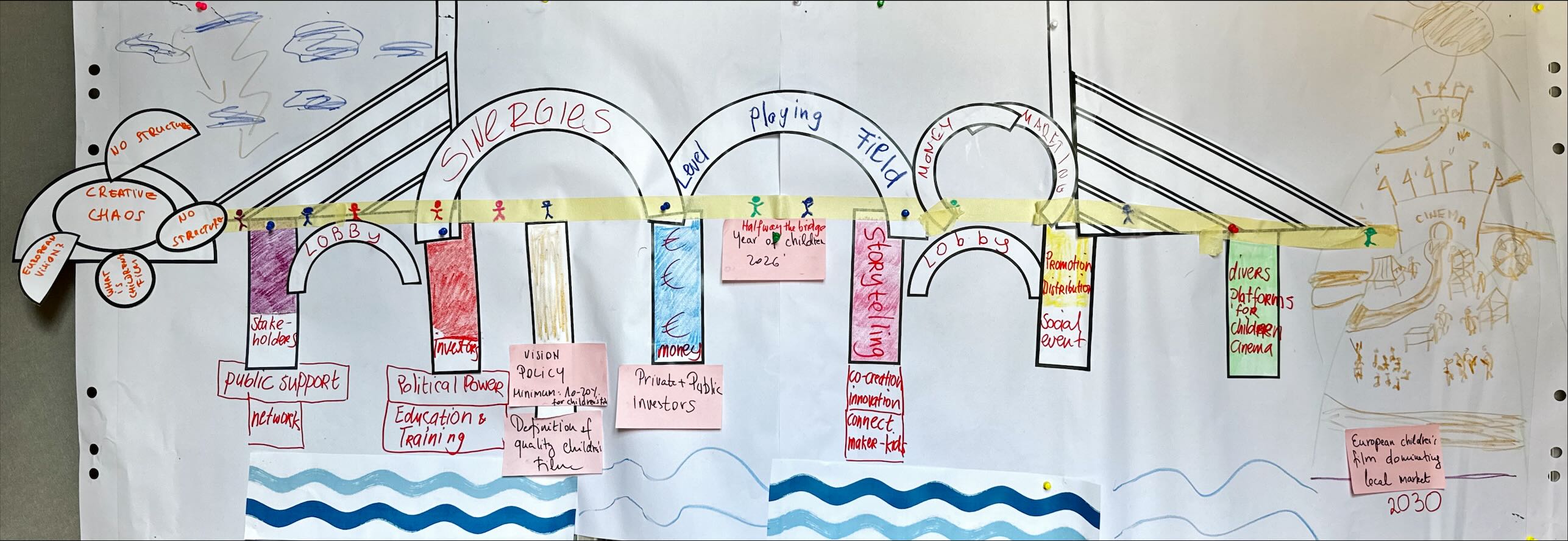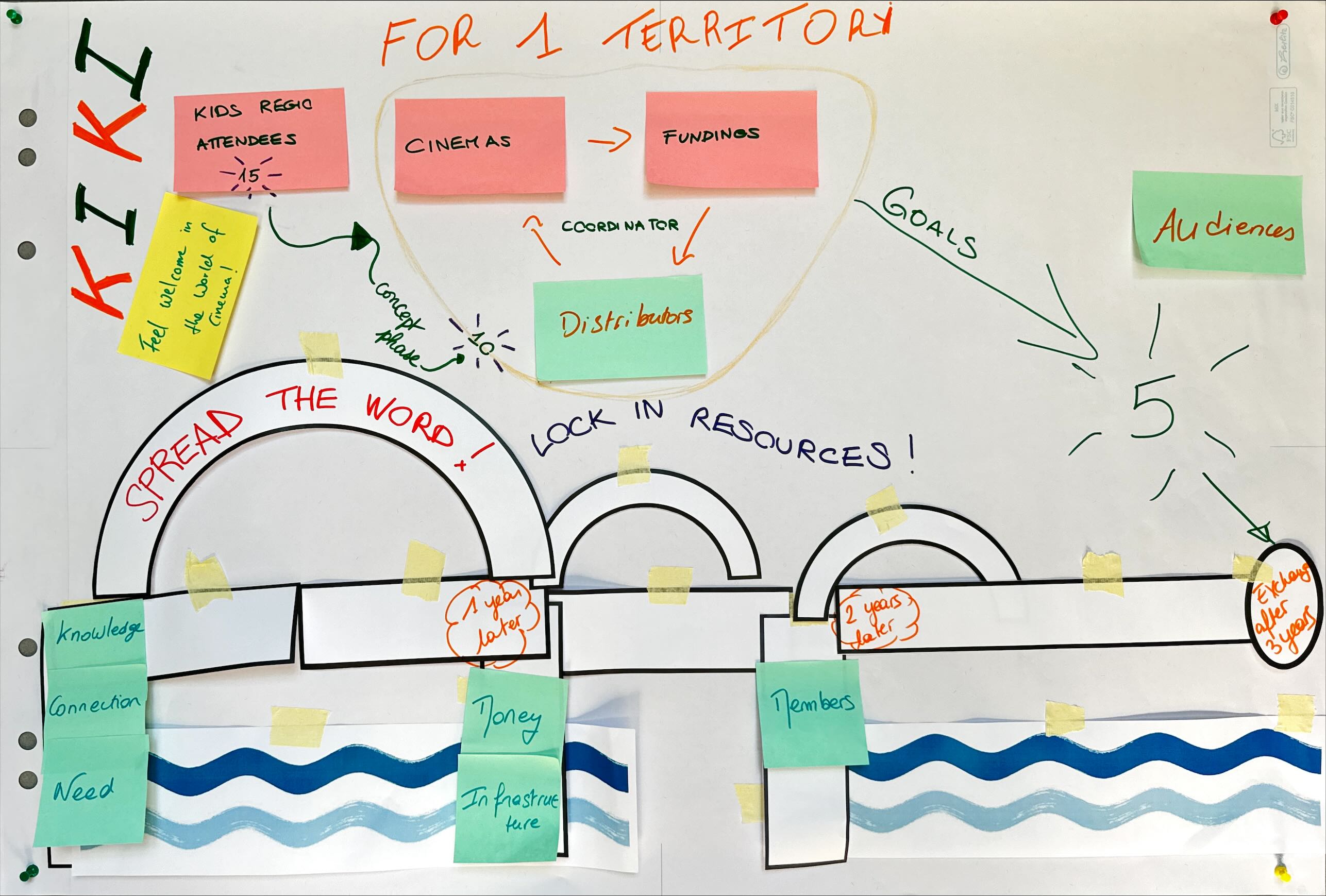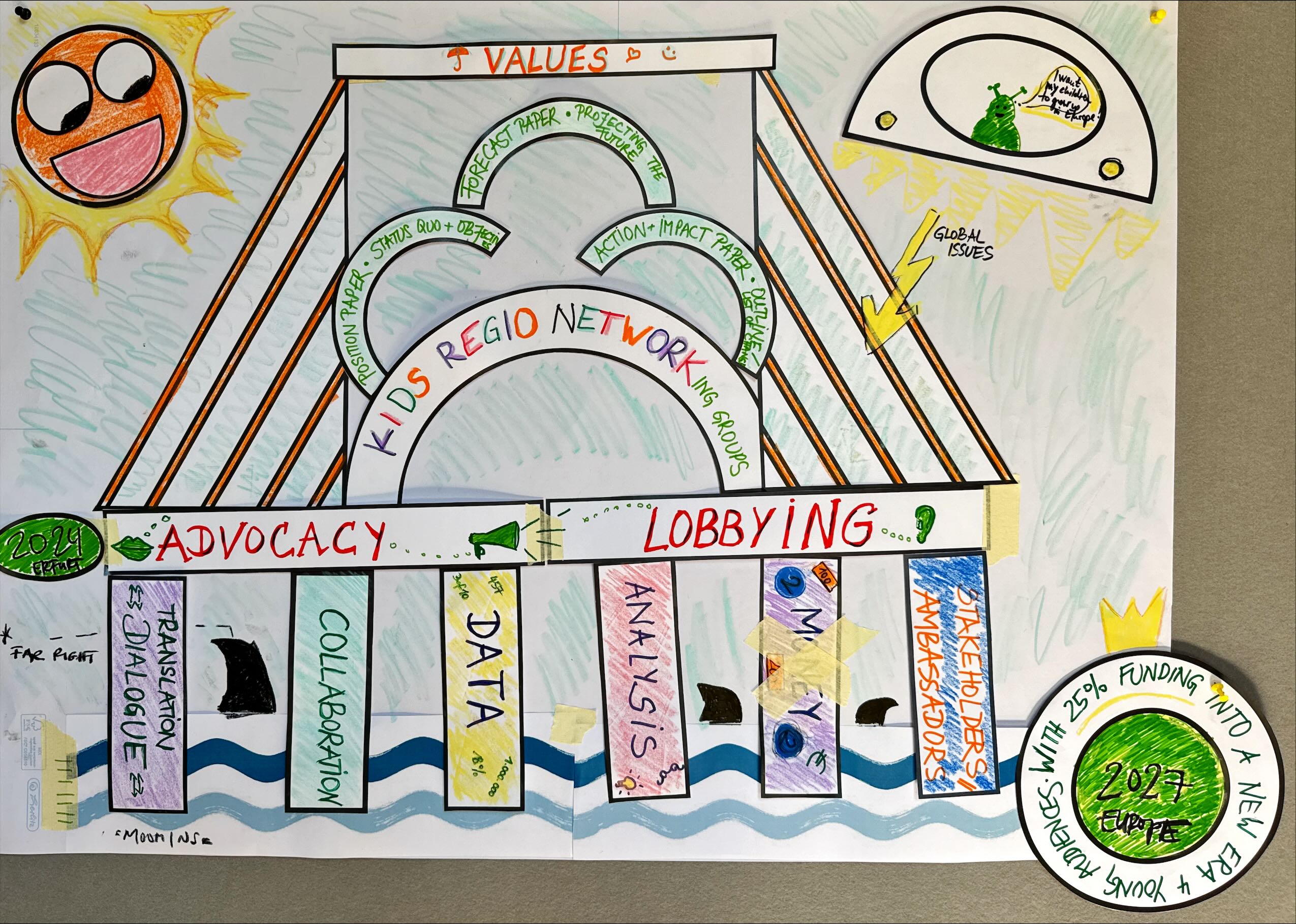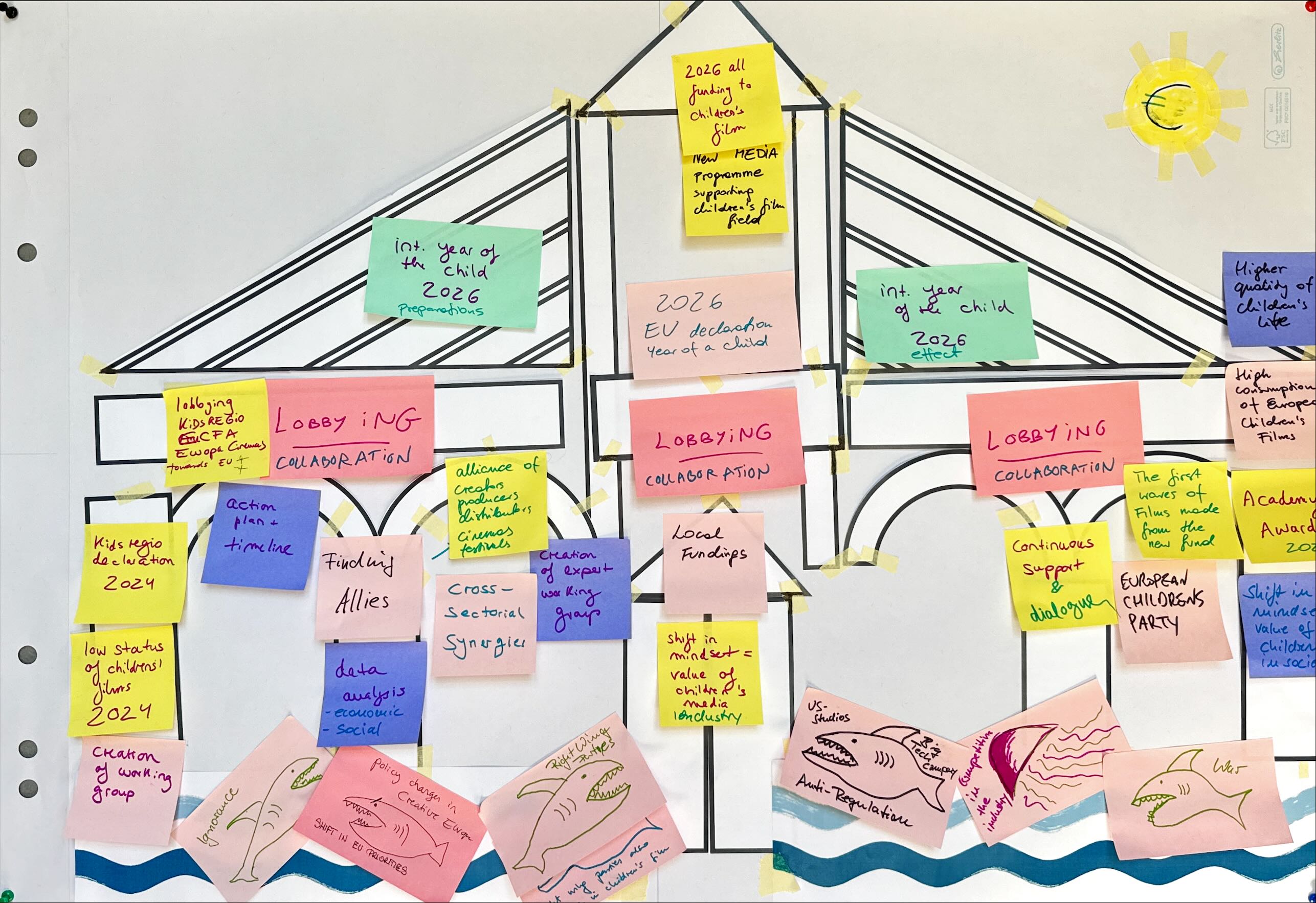
Live Editorial

Keeping up with Children as an Audience
„Keeping Up with Children as an Audience“ by KIDS Regio and PUBLIKUM provides in-depth insights into the media consumption habits of children across Europe, based on extensive qualitative and quantitative data from twelve countries. It highlights differences and similarities between countries, focusing on how children aged 7-11 perceive films, their preferences for genres and characters, and their viewing habits. Both individually and in social contexts such as family and school, the report reveals children’s definitions of film, preferred content and interactions. These findings are intended to help filmmakers and media professionals create relevant and engaging content for this dynamic young audience, thereby increasing the cultural diversity and potential of European children’s films.
- Julianne Forde, Tailored Films (Ireland)
- Sebastian Markt, Berlinale Generation (Germany, Global)
- Ariel Bianucci, EFAD (Europe)
- Jo Mühlberger, European Film Promotion e.V. (Europe, Global)
- Nora Lakos, Cinemira Hungary (Europe)
- Heleen Rouw, Stichting Cinekid Amsterdam The Netherlands (Europe, Global)
- Petra Rockenfeller, FTB H. Pesch & Co. ohg – LICHTBURG FILMPALAST Oberhausen (Germany)
- Klemen Dvornik, FERA – The Federation of European Screen Directors (Slovenia, Europe)
Tagline:
In a world where children films‘ policy is undefined, Denmark saved the day.
- Elisabeth Wenk, German Children’s Media Foundation Golden Sparrow (Germany, Austria, Switzerland)
- Jure Bušić, Jaka produkcija (Croatia, Slovenia, Serbia, Montenegro, Italy)
- Charlotte Appelgren, CineRegio (Association of Film & AV Funds) (Europe)
- Manuel Fioroni, European Audiovisual Observatory (Europe)
- Markus Görsch, Mitteldeutsche Medienförderung (Germany)
- Becky Parry, European Children’s Film Association (United Kingdom)
- Jeanette Schjerva, Film i Skåne AB (Sweden)
- Noémie Levadoux, Europa Cinemas (France, Germany, Austria, Liechtenstein)
Tagline:
Moving towards something together.
- Mikk Granström, NGO Black Nights Film Festival (Baltics)
- Annelie Zapfe, Representation of the free State of Thuringia to the EU (Thuringia, Germany, Europe)
- Ivana Đurašković, Film Centre of Montenegro (Montenegro, Europe)
- Radka Hoffmanová, Young Film Fest, Visegrad Young Film Days, Kino Kavalírka (Czechia, Germany, Slovakia, Hungary, Poland)
- Eszter Lányi, National Film Institute Hungary (Hungary)
- Magda Wylężałek, Young Horizons Industry (Poland)
- Manu Guddait, Berlinale – European Film Market (International, Europe)
- Pantelis Panteloglou, European Children’s Film Association (Greece, Europe)
Tagline:
Storytelling for politicians inspired by „Game of Thrones“.
- Martin Blaney, Screen International (DACH countries, Eastern Europe)
- Julia Krättli, Zürcher Filmstiftung (Switzerland)
- Signe Zeilich-Jensen, Freelance (The Netherlands, Europe)
- Mariella Harpelunde Jensen, Buster Filmfestival – Fonden De Københavnske filmfestivaler (Nordics)
- Janne Vierth, Swedish Film Institute (Sweden)
- Heike Meyer-Döring, Creative Europe Desk NRW c/o Film- und Medienstiftung NRW (Germany, Europe)
Tagline:
Don’t get lost in the jungle. Bring a map.
- Edita Bilaver, Kids meet Art (Croatia, Europe)
- Petra Slatinšek, Javni zavod Kinodvor (Slovenia)
- Godefroy Vujicic, ASSOCIATION PICTANOVO (France)
- Kristina Trapp, EAVE (Europe)
- Marta Jodko, International Young Audience Film Festival Ale Kino! (Poland, Europe)
- Terje André Nymark, North Norwegian Film Centre (Norway)
- Margret Albers, European Children’s Film Association (ECFA) (Europe)
- Christoph Schweitzer, Thüringer Staatskanzlei (Germany)
Tagline:
Policy – from vision to mission accomplished …to be continued…
- Katharina Albrecht, Akademie des Österreichischen Films (Austria)
- Julia Tal, AG Kinderfilm (Switzerland, Europe)
- Michael Harbauer, SCHLiNGEL – IFF for Children & Young Audience (International)
- Vėjūnė Dūdėnienė, Skalvija Cinema Center (Lithuania, Baltics)
- Victoria Thomas, London Film School /Republic of Story (Europe, Sub Saharan Africa)
- Petri Kemppinen, Good Hand Production (Northern Europe, Europe)
- Carolina Mancini, Cineuropa (Italy, Europe)
- Catarina Ramalho, PLAY (Portugal)
Tagline:
Start them young.
- Alfred Sesma Siuraneta, Drac Màgic – Pack Màgic (Spain)
- Gudrun Sommer, DOXS RUHR (Germany, Europe)
- Tamara Kolaric, Dublin City University (Europe)
- Rebecca Hartung, Pluto Film Distribution Network GmbH (Global)
- Rüdiger Hillmer, Förderverein Deutscher Kinderfilm e.V. (Germany, Switzerland)
- Elin Algreen-Petersen, The Cross Media School of Children’s Fiction (Denmark)
- Christine Eloy, Europa Distribution aisbl (Europe, Global)
- Rikke Flodin, PUBLIKUM / Will & Agency (Europe)
Tagline:
With power comes great responsibility for the next generation.
- Nína Richter, Reykjavik International Film Festival – RIFF (Iceland)
- Mark Higham, European Film Academy (Europe)
- Maria Papasotiri, THESSALONIKI FILM FESTIVAL (Greece)
- Thomas Hailer, Akademie für Kindermedien / Nordic Film Days Lübeck (Germany, Nordics, Baltics)
- Mirja Frehse, Creative Europe Desk Berlin-Brandenburg (Germany)
- Pauline Durand-Vialle, FERA – Federation of European screen Directors (Europe)
- Hilde Steenssens, Filem’On (Belgium, Europe)
- Marlena Gabryszewska, Arthouse Cinemas Association (Poland)
Tagline:
Policy is us – a vision of film for children made real.

Film in School Curriculum Slovenia
How can film education be integrated into school curricula?
This input session will explore the process of integrating film education into the school curriculum in Slovenia. It will detail the steps taken by an advisory group to develop and implement a successful plan for the Ministry of Culture and in second step, Ministry of Education. The session aims to share valuable insights and strategies that might be applied to similar initiatives in other regions.
HOW I LEARNED TO FLY – A pan-European Distribution Campaign
What steps or innovative approaches could further increase the international reach and success of children’s films in today’s competitive market?
Learnings from the most perfect Filmlaw for Children and Youth in the World
How can the European funding systems help sustain new Film talent, stories and reach the young audiences in local European languages mirroring the present, past and future of the young generations?
In 1997 Danish lawmakers revised the National Film Law. A groundbreaking feature in the new law was § 11. “At least 25% of the funding reserved for production of feature, short and documentary films – was to be reserved for films for children and youth”. The law still persists, but the media landscape has changed. How can we learn and build from this great political achievement on children’s cinema 27 years later?
Rebranding Young Horizons
How do you brand to appeal to a diverse audience of all ages?
After 9 years, the Kids Kino IFF was renamed Young Horizons IFF. A new name, identity, visual key and way of communicating have been created to reach a wider audience and new generations who have completely different expectations and no longer want to be identified as children.
Revitalizing Non-Commercial Family Film Viewership in Europe
What role can film festivals and distribution programs play in shaping the future of non-commercial family film viewing?
Non-commercial cinemas and film festivals in Europe face an aging audience and competition from multiplexes and streaming platforms. In Lithuania, family screenings are among the least attended, with high costs and competition leading regional cinemas to favor commercial content. This trend risks the disappearance of essential educational and artistic children’s films.
Thinking about (European) Audiences?
When working on a film project, what do you consider as the ‘metrics of success’ you’d want to achieve with it?
Building networks for cinemas and lift up the young audience – a joint mission
How can we build a participant-driven network and what can we learn from similar networks?
One efficient recipe to keep Children’s Films circulating and reaching a broader audience internationally
How can we create a safe environment for film publishers and distributors to keep promoting Children’s Films and distribute them on as many channels as possible?
Educational rights are key for the independent distribution and promotion of Children’s Films. It is not about taking profit from the schools and their pupils, but rather an economic necessity to ensure the circulation and access to these films. This session will be an opportunity to discuss how these rights can help to bring these films to a larger audience and create curiosity among the youth for independent content from a very young age – while also respecting the investment done and the risk taken by the various players within the film value chain.
Lobbying for Children’s Film – The power of collective work
How can collaboration enhance awareness in the industry, networking and financial backing?
Two national and one European association report on how they are working to have a positive impact on the film industry when it comes to young audiences. How can the positive results of national efforts be used as a model for other countries? How can international cooperation provide a ground for common solutions to common challenges?
Feature Films for the 6-8 year olds
Why is it crucial to develop live-action films specifically tailored for children aged 6 to 8, and what steps should the industry take to address this need?
The working group „Spielfilme 6-8,“ part of the Förderverein Deutscher Kinderfilm e.V., focuses on addressing the scarcity of live-action films targeted at children aged 6 to 8. To understand the current landscape and formulate actionable solutions, the working group engaged in comprehensive discussions with various stakeholders within the film industry, including broadcasters, producers, cinema operators, media educators, and the children themselves. These discussions revealed a keen interest and perceived need for such films but also highlighted substantial challenges in production, such as financing and a market dominated by animation and established franchises.
Learnings from the quest to implement the UN Convention on the Rights of the Child
Is it possible to implement UNCRC into an institution? How far can you take it and what do you need to begin the work?
Starting in 2021, the team began investigating how the Convention on the Rights of the Child affects all parts of Film i Skåne and how they can use it in the development of various collaborations with external actors, especially with regard to young people’s opportunities to influence content and initiatives and how to strengthen the structures in the long term for young people’s encounter with the film industry at local and regional level. Film i Skåne currently has two certified children’s rights strategists. But how did they get here and what can everyone do to be even better?
Lobbying for UngRIFF (e. YouthRIFF): Navigating Children’s Film Policy in Iceland
How can we adapt existing policies to better support cultural projects like children’s film festivals?
Exploring the journey of lobbying for UngRIFF, Iceland’s children’s film festival founded in 2023. Discussing how to adapt current policies and strategies for funding cultural projects and addressing the somewhat ethical questions that may arise. Providing insights and strategies for effective policymaking in the cultural sector.
Barriers to entry versus Barriers to success
How can we identify and remove systemic barriers to success, to ensure greater representation in the European film industry?
This input session will feature research on the unintended consequences of current structures in creating systemic discrimination faced by underrepresented groups in the European film industry. It will examine how the norms become barriers that limit, for example, their eligibility for awards and participation in film festivals. The session will also look at how similar systemic issues affect children’s films, which are often poorly recognised.
European Children’s Film: What counts?
What quantitative data about children’s film is accessible and how can we use it to lobby for children’s film?
KIDS Regio has led an important exchange of information between ECFA and the European Audiovisual Observatory. Headline insights from this exchange will be shared in this session, including data on production numbers in different European countries, film releases and audiences. Participants are invited to discuss what further research, data and analysis is needed to lobby for the future of children’s film.
Life as a Film Lobbyist in Brussels
Where Are the Currents Shifting?
The political landscape in Brussels has evolved significantly in recent years, culminating in the recent European elections. The influence of US entertainment and major tech companies has notably affected European film industry advocates. What implications does this hold for the upcoming European Commission and the future of cultural policies in Europe?
Inspirational Dialogue with Edita Bilaver & Petri Kemppinen
“If we want things to change, we need to take responsibility.” That’s one of the key conclusions that emerged from the KIDS Regio Forum Inspirational Dialogue between Edita Bilaver of Kids meet Art and Petri Kemppinen of P1 Kemppinen & Good Hand Production on the second and final day of the Forum. Both were also very clear about their expectations for the next steps. Today is not the end; it is the beginning. The 60-plus participants should engage with all of the 6,000-plus stakeholders involved in the field of children’s films in Europe – from producers and funders to festivals, and, last but not least, regional and national politicians. “We should be more bold,” Bilaver concluded. “We need to present our case in a more professional manner rather than an emotional one.” Kemppinen added: “We need to provide them with data, facts, and evidence.”




